It’s been about three months since Favero announced their next generation power meter pedals, the Assioma. These pedals would build upon the BePro units of two years ago, doing away with the complicated installation process while also adding in Bluetooth Smart support and a companion app. Like the previous generation, they’d have a dual sensor solution (Duo), and a single-pedal solution (Uno). And like the previous units as well, they’d be priced far better than most competitors.
Of course, my question is whether or not they’d be as accurate as the BePro units, as well as how well they’d handle day in and day out. So I sit here about 45 days from my first ride with them, with plenty of data on these final production units. Note that I did not receive these from Favero, but rather went out and got them myself from normal retail channels. I’m impatient like that.
With that – let’s dive into things!
Unboxing:
Wait, you wanted an unboxing video complete with weights? No problem – here’s my Favero Assioma Unboxing video (and first ride data):

If you still want the photograph version of this, then I’ve still got ya covered! Let’s start with the box:
Now the first thing is that not all boxes are created equal. The boxes have a very important red dot on them in different spots, which indicates whether you’ve got the Duo or the Uno. The Duo is the dual (left/right) sensing pedals, whereas the Uno is the single sided variant with only one power sending pedal.
It’s a smart way of differentiating without having to make two totally separate boxes.
Inside the box, here’s the goodness you’ve got if you crack open the lid:
Not gonna lie, it just looks super pretty above. Really cleanly executed. Down below deck I’ll take out all the parts sitting in little compartments. Sorta like a Bento box.
And here’s everything all placed out on a table:
To itemize those parts, there’s the charging cables, for which you’ve got two of (one for each pedal), and then they plug into the dual USB power adapter:
And of course, there’s a pile of outlet connectors for most of the world’s outlet types:
Then we’ve got the cleats. These are Xpedo-based cleats, which are identical to those of the PowerTap P1. They’re very slightly different than a Look Keo cleat. For some people you’ll find a Look Keo cleat will work just fine for you, and for others (like myself), I find I clip-out a bit too much when not using the included (or similar) cleats.
Then we’ve got the pedals. Since this is the Duo, both are power sensing inside. Note, normally the pedals will be spotless perfect, but I can’t find the SD card with my perfect pedal pictures on it. So, slightly used pedals you get at this juncture.
Alongside that we’ve got a small stash of washers. These are used as spacers attached to the pedal, to keep your pedals from pushing up against carbon cranks. I usually install one spacer per pedal, but for your situation you may need two.
And finally, the manual. Because everyone needs a manual.
Just for a quick look at sizes, here’s how these all line up compared to the PowerTap P1 and Garmin Vector 3 pedals (left to right: Favero Assioma, Garmin Vector 3, PowerTap P1):
(Above left: Assioma, Vector 3, P1…above right: P1, Assioma, Vector 3)
Got all that? Good, let’s get it installed. It’s gonna take a while, you know, at least 1-2 minutes.
Installation/Setup:
If you rewind two years ago to when Favero came out with their BePro pedals, you’ll remember the installation process was less than awesome. It wasn’t horrible, but it wasn’t awesome. It required special tools, stickers, tidal and moon patterns be just right, and then a bit of luck. Plus, it required a ride or three of settling.
This time though with Assioma? Dead simple.
Seriously.
But before we install the pedals you will need to download the iOS or Android app and activate the pedals. If you don’t do this, they won’t transmit any power. Personally I think this is stupid as it’s just going to increase their support costs for people that missed this step, but the logic is that it enforces the warranty period.
Once that’s done you take the included Allen wrench and then two pedals. Also, stash a spacer or two on each of said pedals:
Then, simply twist the pedals into your crank arms. It’ll probably take you 20 seconds or so per pedal:
And then you’re done. Really, it’s that simple.
When it comes to how hard you need to twist/torque them on, just go with ‘feels strongly snug’. I haven’t seen any evidence that they have troubles if you don’t torque to a certain spec. I’ve swapped them about every other ride just to test things, and it’s been solid on all rides.
As I do however, on all power meters, I usually will do a few quick sprints around the block to settle things before doing a zero offset. So I’ll just sprint for 4-8 seconds and do it perhaps 2-3 times. That’s it. That helps ensure the pedals are nice and snug.
Then I’ll do a zero offset (I’ll show you how to do that in a minute).
Note that you will need to change/set the crank length. You could do this with the phone app, or you can do it with your head unit. This only takes a second though and is located under sensor settings:
Your crank length is usually printed on the inside of the crank arm, near where the pedal attached. It’s often something like 172.5mm, 175.0mm or similar.
General Use Overview:
When it comes to using the pedals, things are pretty straightforward. We’ve already attached the pedals to the bike and then set the crank arm length. Ideally we also installed the cleats on your shoes. If you haven’t, I’d suggest doing so.
The next step is ensuring that you zero offset the unit. This is more commonly called ‘calibration’, despite some nuances there in the actual term among power meters users. No matter, I recommend doing a calibration after install (+ a few sprints), and then usually once before each ride. Doing a zero offset/calibration is helpful because it allows you to spot a problem before it becomes a big issue. If you never zero offset you may not realize something is amiss. Think of it as a health-check, more than a calibration.
On your head unit, once in the calibration menu, ensure that you’ve got no weight on the pedals, and then let it do its thing:
It’ll come back with a value of zero and a success prompt.
If you dive into the settings on some head units, you can also see the battery state of the pedals, as well as the manufacturer and sometimes firmware version:
This same data can be found on the Favero Assioma app as well. It’s within that app that you can check firmware and update it. At present there haven’t been any firmware updates yet.
The app doesn’t really do much else besides that. It’s mostly just the initial registration/warranty piece and a quick status check.
You can however set power correction as well as convert an Uno set into a Duo set or vice versa. Note that typically power correction isn’t for changing left/right balance, but rather for dealing with crank lengths of differing sizes.
When it comes to transmission, the unit broadcasts constantly on both ANT+ & Bluetooth Smart, also known as dual ANT+/BLE. In doing so, it broadcasts the following metrics:
ANT+ Power (total)
ANT+ Power Balance (left/right)
ANT+ Cadence
ANT+ Pedal Smoothness
ANT+ Torque Effectiveness
Bluetooth Smart Power
Bluetooth Smart Power Balance
Bluetooth Smart Cadence
The ANT+ side of things is generally used on Garmin head units, as well as Wahoo, Stages, SRM, Lezyne and others. Whereas the Bluetooth Smart side of things is generally used on Polar, Suunto, and various phone apps. But these days Garmin’s 2017 products can connect to Bluetooth Smart as well, and of course so can Wahoo, Stages, Lezyne and others.
As a general rule of thumb though for power meters, when given the opportunity to connect over ANT+ or Bluetooth Smart, you should choose ANT+. Why? Well in most cases, especially for dual left/right units, head units handle that better in ANT+. For example, Suunto’s devices can’t actually connect to both the left and right side of the Assioma (or even the PowerTap P1 pedals). So instead you effectively just get left or right power doubled. And other products sometimes have problems correctly ‘merging’ the two left/right sides on Bluetooth Smart. Someday these problems will be fixed, but today is not that day.
On the flip-side, sometimes folks with wearables (like Garmin’s watches) will have problems in aero position and ANT+ transmission from some power meters. In that case, giving Bluetooth Smart a whirl may fix the issue for some.
In any case, here’s a glance at what all those metrics look like on a typical ride with the Assioma pedals. This was recorded on an Edge 1030, but would be the same across pretty much any ANT+ head unit. You can look at the full activity file here:
When it comes to charging, the Favero Assioma pedals use rechargeable batteries that are built into the pods themselves. You’ll see the small contact points on the outer edge of the pod:
The USB-based charging connector then magnetically snaps onto these. It fits quite nicely, and illuminates once charging:
Favero advertises 50 hours of battery life per charge. Here’s where I am on battery status: I had one battery die just yesterday, and I suspect I’m in the 20-25 hour riding range since the last full charge (which I’m pretty sure I did overnight). At the same time, I had a TON of travel in the DCR RV over the past 2 weeks, which the bike was in. My guess is about 20-25 hours of driving time easily, plus two transatlantic flights. Which points me in the 50-65 total hour range, in the unlikely event that the pedals actually turned on the entire time I was driving. It’s something we’ll have to keep an eye on. Note that Favero says their testing on units shows closer to 65 hours. Also note that you can put the pedals into a sleep mode while travelling, which would likely address what I saw.
In any event, the two charging cords connect to the dual-USB port power outlet:
The cables are nice and long, so it’s easy to charge them while still on the bike.
Also – I’ve seen some concern about what happens when the batteries ‘die’, apparently in reference to how you might swap them out. Some of this is due to misunderstandings about how rechargeable batteries die. First off is that batteries are generally rated to a certain number of recharge cycles, in the case of the Assioma battery, that’s estimated to be about 500 cycles (per an e-mail from Assioma). Once it reaches that number, they don’t stop working. Instead they might slowly degrade, perhaps to 80% of battery capacity. With a battery life of 50 hours, and the 500 recharge cycles, that puts you at 25,000 hours of battery life before it starts to degrade. That’s 24 years of riding 20 hours per week. Or almost 50 years if you rode 10 hours per week. Seriously, you’ll have long moved onto something else by then. Battery cycle time is not your concern here.
Finally, a brief note about the pod durability. The pods are internally sealed with a resin, which protects everything inside of them. In my Favero BePro review two years ago I noted that in the couple months I used my set then, that the outer shell got damaged and I was concerned about long-life durability. Thankfully, that turned out not to be an issue, and I don’t believe I’ve received a single complaint about that being an issue for the BePro units. With Assioma, the company hardened the material even more, and thus I don’t think that’s an issue.
Still, I will note that at some point along the way my pods got a bit wonky. To be 100% fair to these pedals, I have no idea if this was caused during a ride, or during transport or some other situation which is 100% my fault. I generally treat gear like crap to see how well it holds up. The pedal still works just fine, it’s simply that the rear of my Assioma is a bit squiggly.
Hardly something I’d be super concerned about, but I figured I’d at least mention it. Either way, the company has a pretty solid warranty policy in the event that your pedal gets damaged far more than that.
Power Meter Accuracy Results:
I’ve long said that if your power meter isn’t accurate, then there’s no point in spending money on one. Strava can give you estimated power that’s ‘close enough’ for free, so if you’re gonna spend money on something it shouldn’t be a random number generator. Yet there are certain scenarios/products where a power meter may be less accurate than others, or perhaps it’s got known edge cases that don’t work. Neither product type is bad – but you just need to know what those use/edge cases are and whether it fits your budget or requirements.
As always, I set out to find that out. In power meters today one of the biggest challenges is outdoor conditions. Generally speaking, indoor conditions are pretty easy to handle, but I still start there nonetheless. It allows me to dig into areas like low and high cadence, as well as just how clean numbers are at steady-state power outputs. Whereas outdoors allows me to look into water ingest concerns, temperature and humidity variations, and the all important road surface aspects (I.e. vibrations). For reference, the Favero Assioma has a claimed accuracy rate of +/- 2% [Update: As of May 2018, they’ve changed their claimed accuracy rate to +/- 1%]. It also does not require any magnets for cadence, while also automatically correcting for any temperature drift. Both of these are pretty common though on most power meters these days.
In my testing, I generally use between 2-4 other power meters on the bike at once. I find this is the best way to validate power meters in real-world conditions. In the case of most of these tests with the Favero Assioma I was using the following other units on four different test bikes:
4iiii Precision Dual power meter
Elite Direto Trainer
FSA PowerBox
Power2Max NG and NG ECO
PowerTap G3 hub based power meter
Wahoo KICKR SNAP 2017/V2 Trainer
Wahoo KICKR 2017/V3 Trainer
In general, my use of other products is most often tied to other things I’m testing. Also, when it comes to data collection, I use a blend of the NPE WASP data collection devices, and a fleet of Garmin head units (mostly Edge 520/820/1000/1030units). For the vast majority of tests on the Favero Assioma I just used Edge 520 devices and an Edge 1030 unit.
Note all of the data can be found in the links next to each review. Also, at the end is a short table with the data used in this review. I’ll likely add in other data not in this review as well, once I finish consolidating that data. I’m a bit behind on getting data off some of my head units into folders.
With that, let’s get right into it and start with analyzing an indoor trainer ride, in this case a 30×30 workout. This is a trainer workout where the power shifts every 30 seconds from a recovery wattage to an interval wattage. Here’s the overview of the workout:
In looking at the high level view, you’ll notice all three power meters are very similar, however the Power2Max NG does seem slightly higher during some of the work periods. The Direto and Favero units are virtually identical throughout. This slight difference is within range of the +/- 2% of both units, so that’s not something I’m terribly concerned about.
All the units react very quickly to the changes in power, with no obvious lag by any of them.
If we look at the nearly 900w sprints (the above charts are smoothed at 3 seconds), you’ll see the power meters again agree very well here:
Of course, anytime you look at max sprint power you’re going to get very slight recording/transmission differences between units – hence why you see them slightly different at the absolute peak power.
A better way to quantify that is by looking at maximal power graphs, which helps to remove some of those recording quirks. Here’s how that looked:
This is where you see those slightly higher values on the Power2Max NG ECO come to light more clearly. It’s also where/why you see those early ‘drops’ impact the graph for the yellow line. Those are likely just transient recording issues in my environment (I.e. WiFi/etc…), and not reflective of that power meter. Said differently: It could have happened to anyone.
As for the Favero Assioma though, it looked really solid throughout this.
Let’s take a look at another indoor ride, this time with the FSA PowerBox and a Elite Direto trainer. In this case this structured workout was at a bunch of different steady-state levels held for various lengths. It’s interesting because it shows if there’s any drift indoors over the course of a workout. Note you’ll see double Assioma units listed here on the charts as I was recording on two head units at once (FR935 + Edge 820) to validate both recordings were identical. I often do that in power meter testing.
Overall you see the three units are very close, except that the PowerBox seems to be slightly high until the 12 minute marker when I did a zero offset. It’s a slight pattern I’ve noticed that it seems to need that zero offset more than I’ve seen with other units. No big deal as long as you’re aware, but it’s super clear here. Also, keep in mind we’re only talking a few watts beyond the +/- 2% range of both units combined.
In any case, back to the Assioma, which performs well here. Seriously folks, just look at these graphs:
If they were any more alike, they’d be twins (ok, technically two of the four are twins). But in that fourth interval we’re a mere 4w apart on 470w (so less than 1% difference).
I don’t need to belabor the indoor graphs anymore, there’s no concerns there. Oh, but before we go – cadence looks good indoors too. Compared to the PowerBox it’s identical, and very close to the estimated cadence on the Elite Direto (when it doesn’t struggle on cadence).
Now let’s head outside for a mountain ride on a cool/rainy day. I like these sorts of rides as they allow you to see if there’s any issues in temperature drift as I climb.
With a 10-second smoothing the three units look near identical. Starting off on the climb, you’ll notice I don’t stop at all, somewhat on purpose. There’s a very slight dip in power as I go on a brief roller, but with not stopping that doesn’t give any units a chance to zero offset. In my opinion, zero offsetting to compensate for temperature shifts is cheating these days, so I’m looking to see that despite this shift in temperature, all units track properly. And if I zoom in on that 50 minute climb section, there’s virtually no difference between the three units. All of about 3-5w in most cases.
Now what about descending? That’s a different use case, as that starts to rattle the bike a bit more, which could impact accelerometers that are used in cadence (and thus power) measurement. Here we see very slight differences in the units. They all track almost the same plot, but within about a second delay (again, smoothed). This is likely due to very minor differences in the algorithms for each as I stop and start pedaling around sharp mountain corners, and then the surges each time.
Practically speaking you’d never notice this while pedaling outside with just one power meter, as the numbers are the same at the end of the day. It’s only really noticed with a bunch of power meters. In fact, you’ll see this almost perfectly lines up to when the cadence values differ briefly for each power meter as I start/stop pedaling.
Let’s take a quick look at that mean-max graph though:
Pretty darn close. A tiny bit of separation at the upper end, but about as good as you’re likely to get with three power meters in real-world out in the mountains on a wet and temperature shifting day.
Finally, one last outdoor ride to analyze, this time a suburban style ride with tons of stops and starts. In this case I had 7 head units recording sensor data, three of which were recording Assioma (including wrist, tri aero bars, and top-tube placed units). Really trying to validate all were seeing the same.
And sure enough, all the Assioma data sets were the same. That generally tells me there’s strong signal strength on the unit. While sometimes you can blame the head unit for weak reception (I.e. the Fenix 5/5S), other times you’ve just gotta call a spade a spade when boatloads of people across many head units have issues (Stages Power single sided units).
In the above case, if you thumb through the results, you’ll see absolutely nothing of concern. Again, the data looks great between the units. There’s one point where the PowerBox drops out for a second or two (around the 1:13 marker). Which could be ANT+ related on the Powerbox, the Edge 520 that was recording it, or something else entirely. That unit only had a second device recording it.
Instead, let’s just wrap-up with the Mean-Max graph here:
Despite a ton of stop and go, lots of surges, and all sorts of other fun city and suburban riding creativeness (including some rough roads), there’s almost no tangible differences here between the units from 15-seconds onwards. Though interesting the PowerTap G3 hub did spike a bit higher than the rest on this one ride for the sub-15 second power. Not sure why…welcome to the realities of power meters day in and day out when recording 3-5 units every ride.
Ultimately – looking at all the data I have – I see absolutely zero issues with accuracy of either power or cadence in the Favero Assioma pedals. They’re solid.
(Note: All of the charts in these accuracy sections were created using the DCR Analyzer tool. It allows you to compare power meters/trainers, heart rate, cadence, speed/pace, GPS tracks and plenty more. You can use it as well for your own gadget comparisons, more details here.)
Power Meter Recommendations:
With so many power meters on the market, your choices have expanded greatly in the last few years. So great in fact that I’ve written up an entire post dedicated to power meter selection: The Annual Power Meters Guide.
I refresh that annual guide each September, and this September will be no different. I tend to wait until after the Eurobike/Interbike trade shows to do so, though I don’t really expect any further new entrants this year at Interbike (could be surprised though!).
Until that post comes out in the coming weeks, here’s some new power meter reviews and previews that may be of interest that aren’t covered in that post:
A) 4iiii Precision Dual System In-Depth Review
B) WatTeam PowerBeat Gen2 Dual System In-Depth Review
C) Quarq DZero In-Depth Review
D) ROTOR 2INPower In-Depth Review
E) Power2Max NG In-Depth Review
F) Power2Max NG ECO In-Depth Review
Plus these options too:
G) FSA PowerBox
H) Stages LR dual system
I) Garmin Vector 3 pedals
With the Stages system though, you’re looking at later this year for a full in-depth review, as they don’t plan to start shipping till November or so.
But what about comparing the Favero Assioma to the PowerTap P1 pedals or Garmin Vector 3 pedals? Well, having all three makes it somewhat easy to compare. I’ve got a separate post I’m working on that dives into the details a bit more, but here’s the down and dirty version:
Favero Assioma: By far the least expensive dual option at $735-$799USD (the price keeps flipping around), and accuracy wise just as solid as all of them. While availability is slightly constrained right now, I’m sure that’ll settle out in the coming months. The only real downside here is the pods, which some might find visually displeasing. But I suspect many won’t care given the cost savings. You won’t get advanced pedaling metrics like Garmin’s Cycling Dynamics, or PowerTap’s app-driven metrics. And of course the batteries are rechargeable vs coin cell, but that’s just a personal preferences thing. Seriously, Favero has nailed it here at the price point.
PowerTap P1: These have been around a few years now, and as such a fairly ‘well known quantity’. They don’t have any pods, but are a bit chunkier than regular pedals. They run on standard AAA batteries, albeit for warranty reasons require Lithium batteries which are slightly more expensive but still easy enough to find. PowerTap does have advanced pedaling metrics, but they’re only available within their app platform and so it’s primarily used in the bike fit realm more than as a day to day metric. Finally there’s price, which sits at $999 now, a price I believe to be slightly too high given Vector 3 now being offered at the same price. I’d argue $899 would be the right price today given the market. Still, up until this summer for the past two years they’ve been my go-to pedal that I travel with and use constantly.
Garmin Vector 3: It took three tries, but Garmin finally nailed it with Vector 3. In many ways it’s what people always wanted – a pedal that was easily swappable and didn’t require pods or a pedal wrench. It also just looks like a normal pedal. It runs on LR44 coin cell batteries, which you can usually find in most gas stations or drug/grocery stores, and the battery life is solid. It has the most advanced pedaling metrics of any of the noted pedal based power meters, and also makes that data easily available on all Garmin head units (but not 3rd party head units). Accuracy wise, things generally seem good, but it’s still a bit beta for the next couple weeks – so you’ll have to wait for my full in-depth review once they finalize stuff. For $999 though, I think it’s probably the winner at that specific price point.
All of which is a round-about way of saying that I think if you’re looking to spend in the mid-$700’s, then the Favero Assioma is probably the winner. Whereas if you’re willing to spend $1000, then Garmin Vector 3 is probably the winner.
Note, I’m not including the WatTeam dual option in this mini-comparison for the very simple reason it’s not pedals. I’m also not including the Polar or Polar/Look Keo pedals because…well…nobody cares about them anymore. I’m not including the Xpedo power pedals because for 3 years they’re “going to ship in 2-3 months”. Seriously, they’re not going to ship.
Summary:
With the Assioma pedals, Favero came back to the table with modest updates that not only keeps their power meter pedals competitive, but did so while keeping their price market leading. The addition of Bluetooth Smart is welcomed for those head units that support it, and more importantly the ease of installation and swapping from bike to bike makes this a real option for those that want to move them between bikes. And of course, the accuracy continues to be very solid.
While the battery life is about a third that of Vector 3, and the pods are still present on Assioma, these are likely minor items for most people, especially given the price difference. Further, the last two years of Favero being in the market with the BePro pedals I’ve seen almost no issues from readers on units. Given my reviews seem to be the place people post issues, the lack of issues is telling (since I know plenty of units are being sold).
For those looking for a more detailed shoot-out between the three major power meter pedal options (beyond the previous section), look for an upcoming post where I’ll dive into little quirks like q-factor differences (shhh…doesn’t matter), cornering, and more. In the meantime, feel free to hit up the comments section below. With that – thanks for reading!
Found This Post Useful? Support The Site!
Found This Post Useful? Support The Site!
Hopefully you found this review/post useful. At the end of the day, I’m an athlete just like you looking for the most detail possible on a new purchase – so my review is written from the standpoint of how I used the device. The reviews generally take a lot of hours to put together, so it’s a fair bit of work (and labor of love). As you probably noticed by looking below, I also take time to answer all the questions posted in the comments – and there’s quite a bit of detail in there as well.
If you're shopping for the Favero Assioma Power Meter Pedals (Dual) or any other accessory items, please consider using the affiliate links below! As an Amazon Associate I earn from qualifying purchases. It doesn’t cost you anything extra, but your purchases help support this website a lot.
Here's a few other variants or sibling products that are worth considering:
And of course – you can always sign-up to be a DCR Supporter! That gets you an ad-free DCR, access to the DCR Quarantine Corner video series packed with behind the scenes tidbits...and it also makes you awesome. And being awesome is what it’s all about!
Thanks for reading! And as always, feel free to post comments or questions in the comments section below, I’ll be happy to try and answer them as quickly as possible. And lastly, if you felt this review was useful – I always appreciate feedback in the comments below. Thanks!


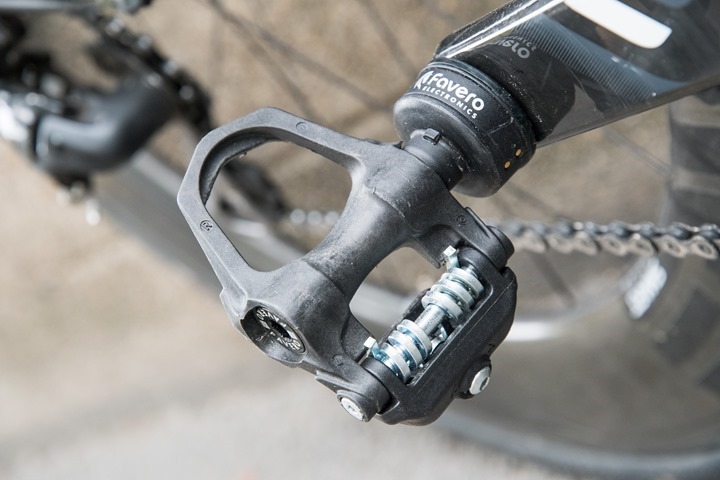
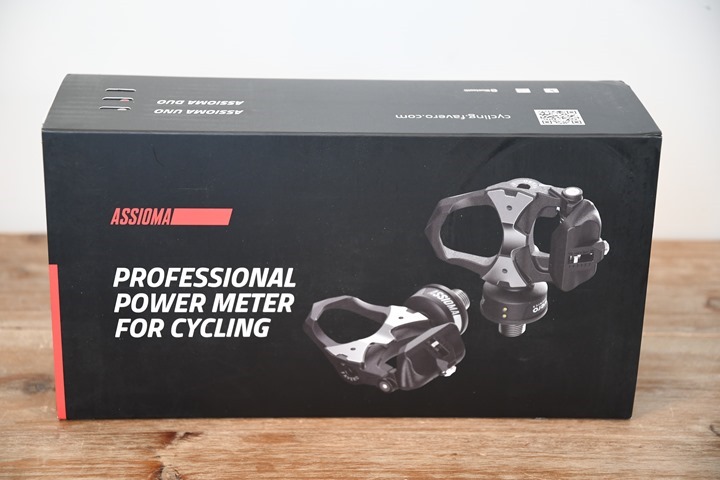
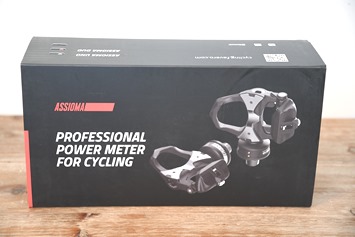
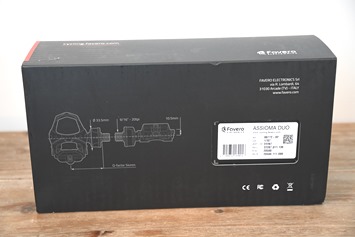
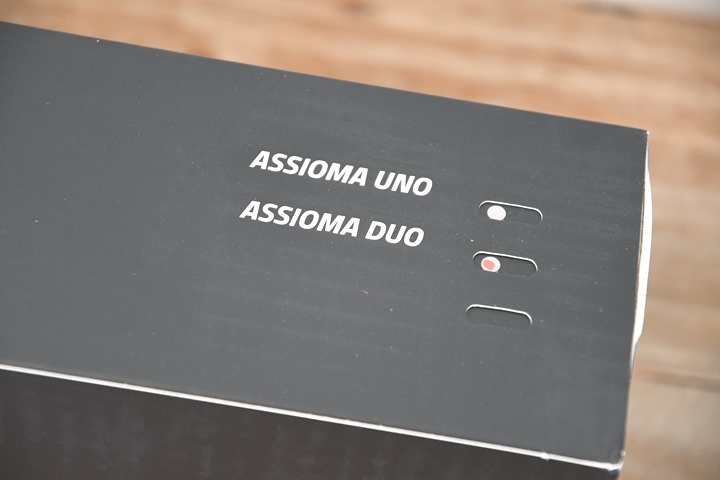
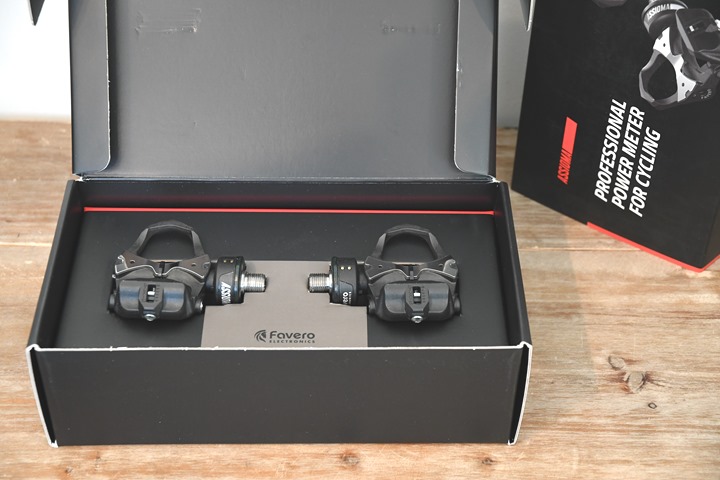
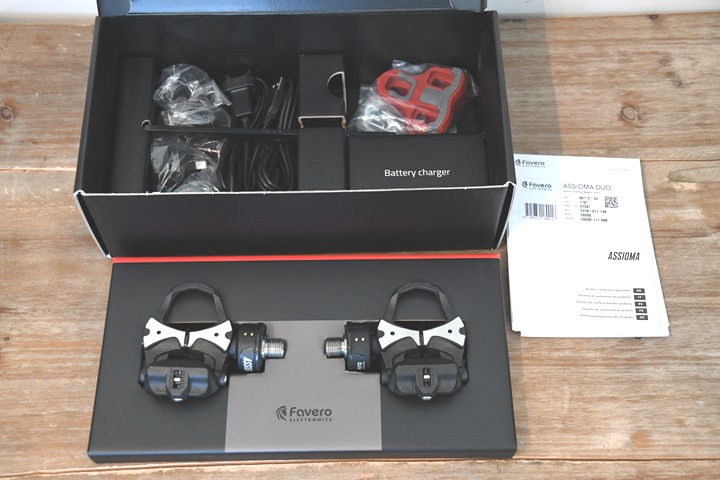
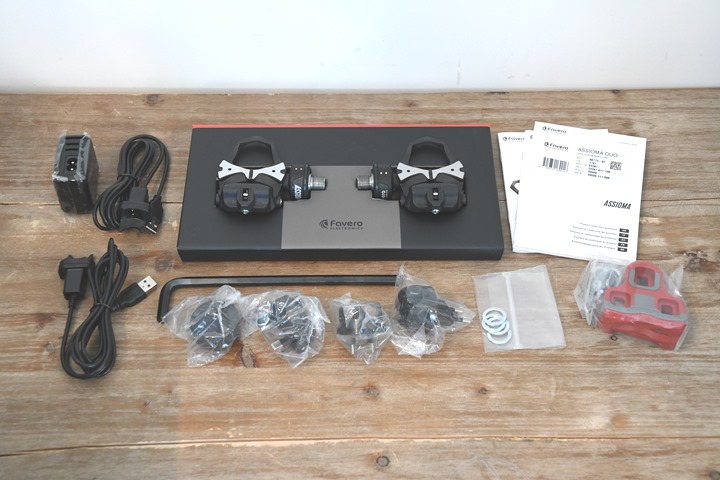
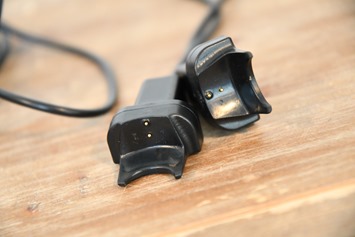
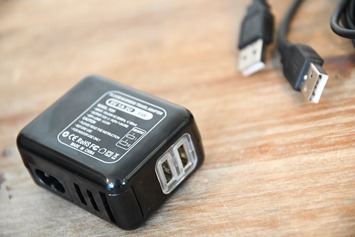
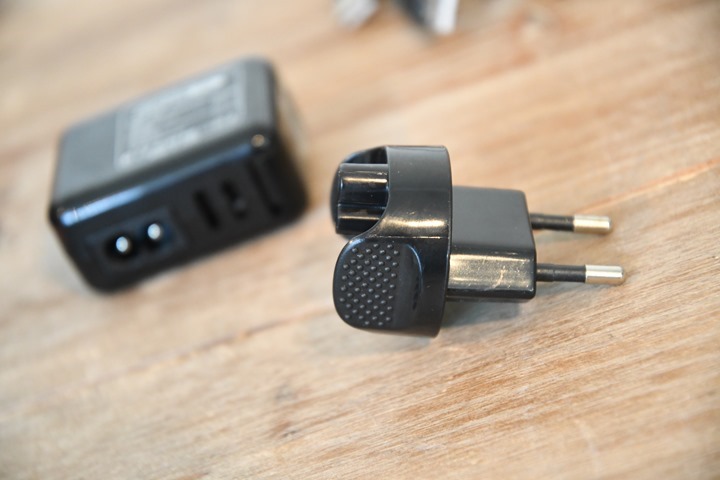
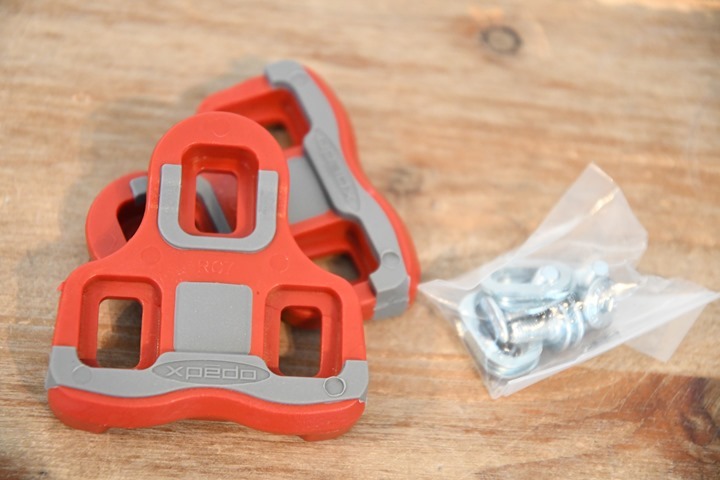
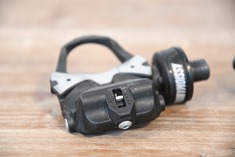
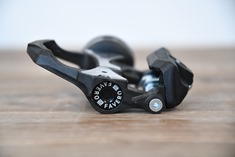
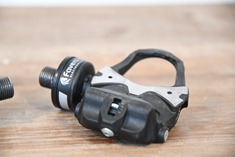
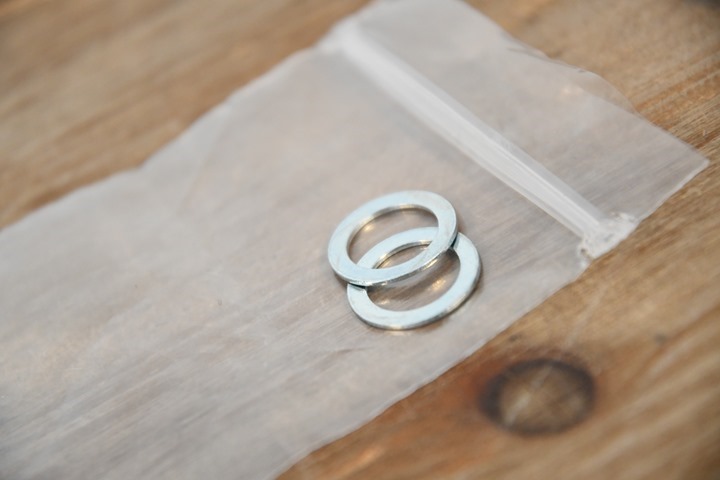
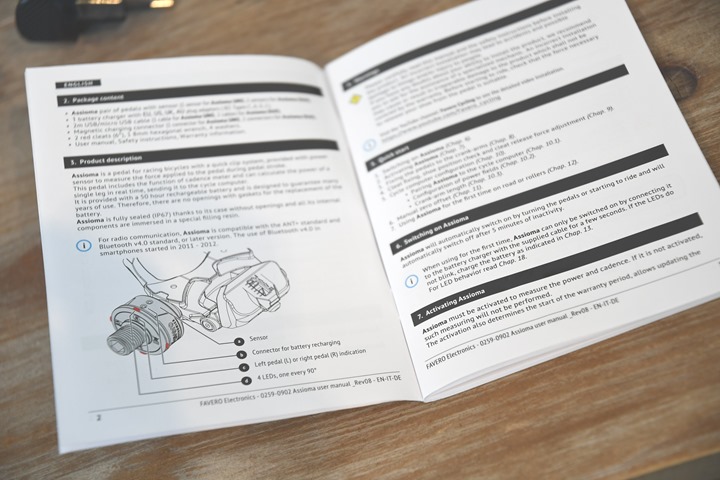
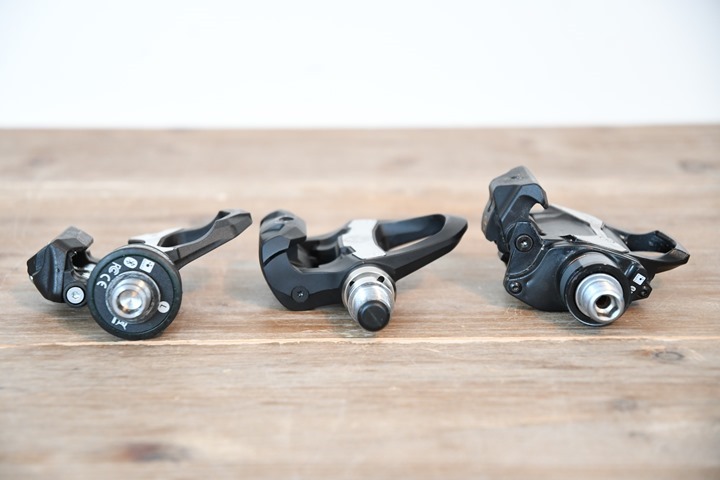
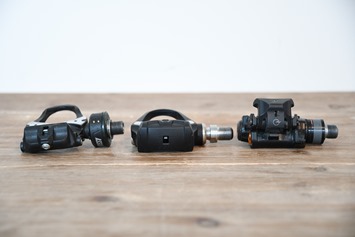
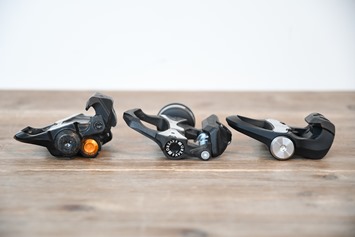
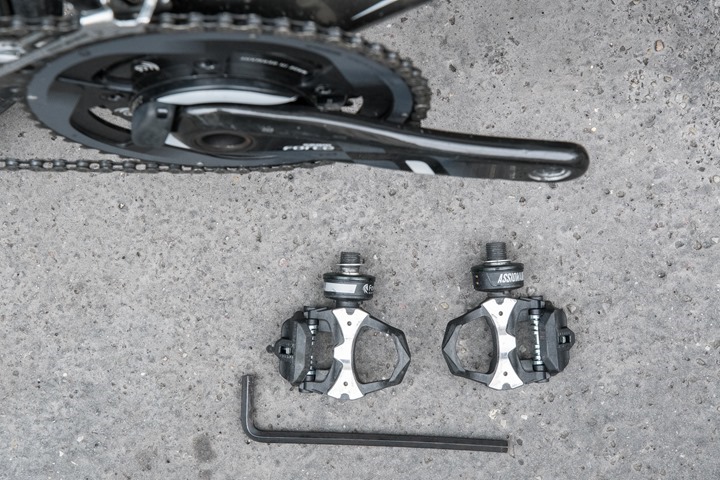
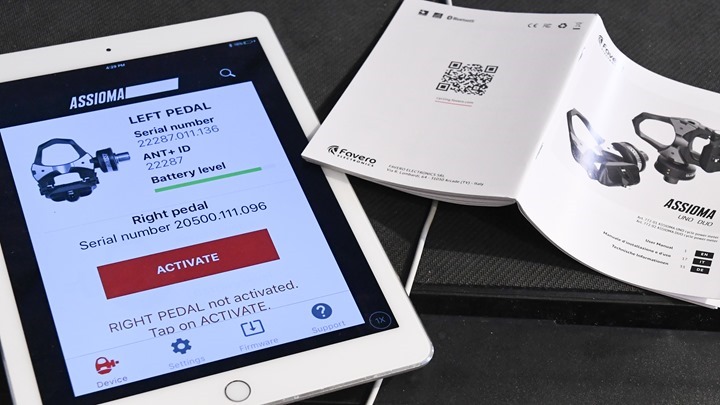
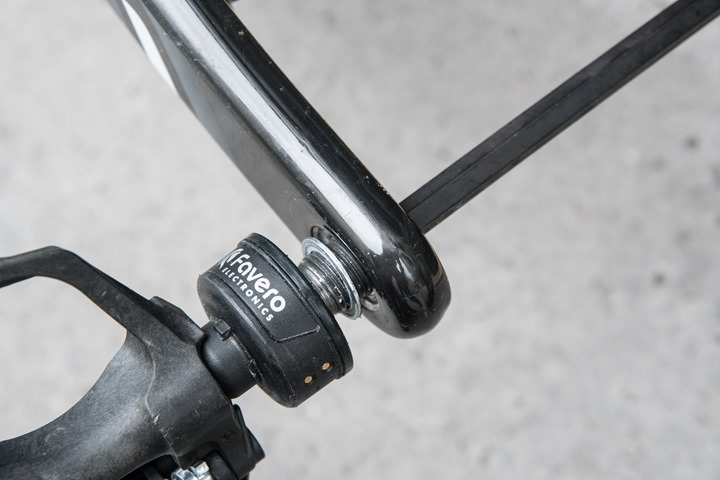
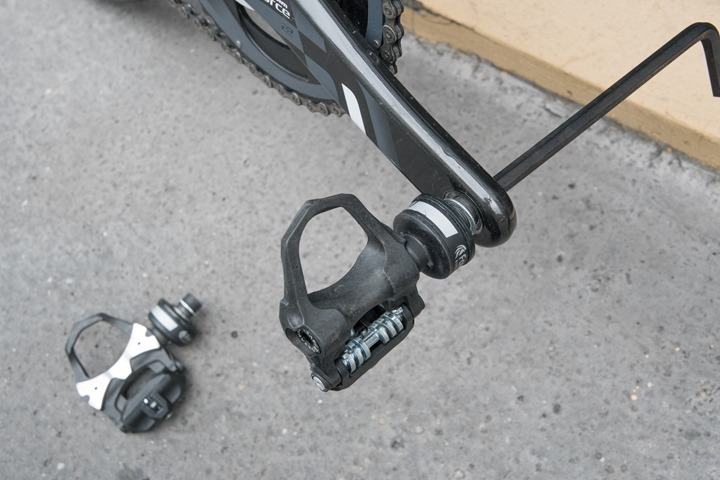
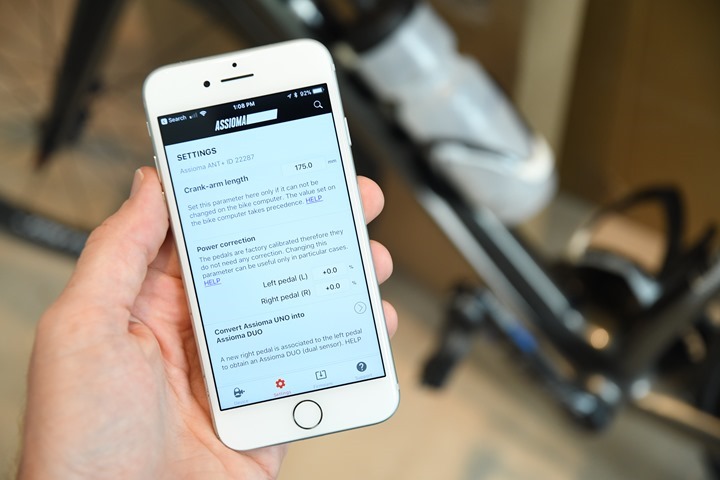
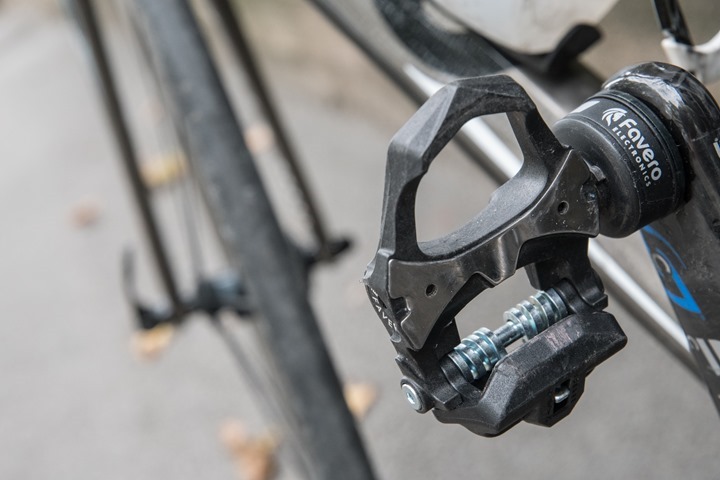
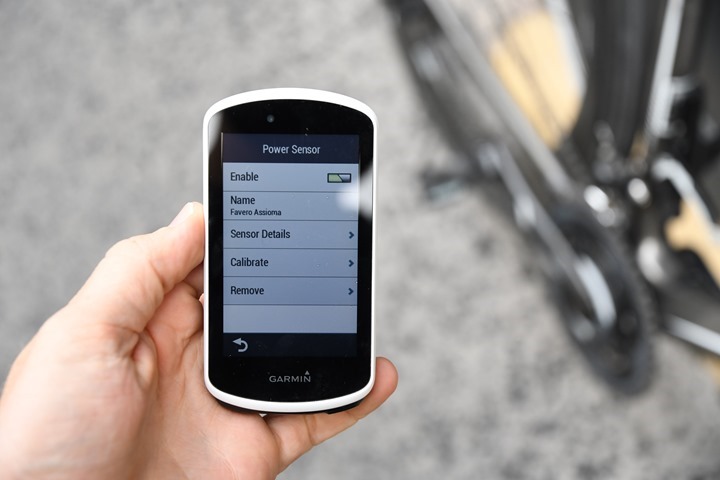
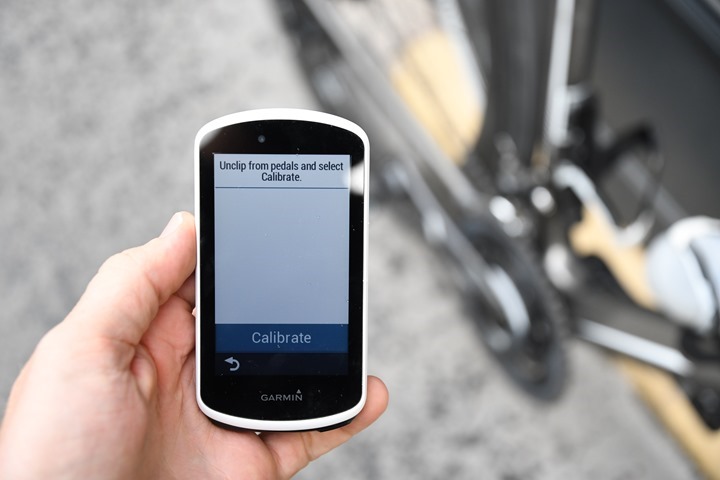
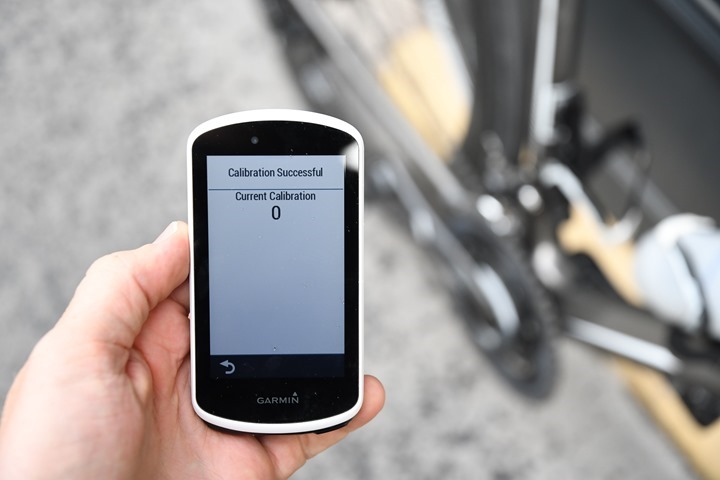
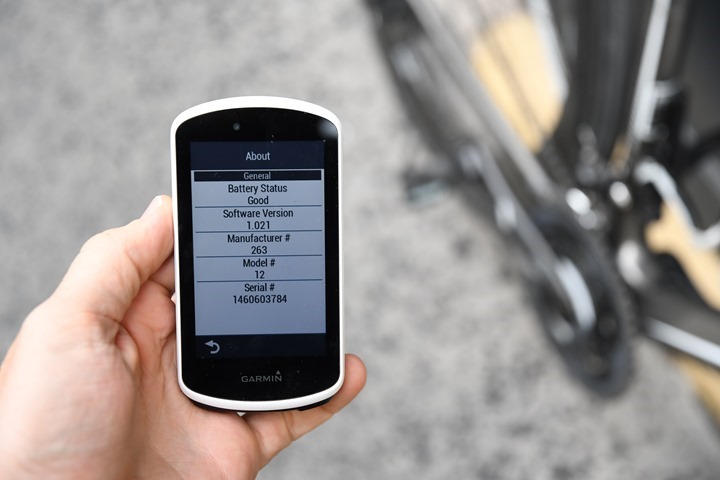
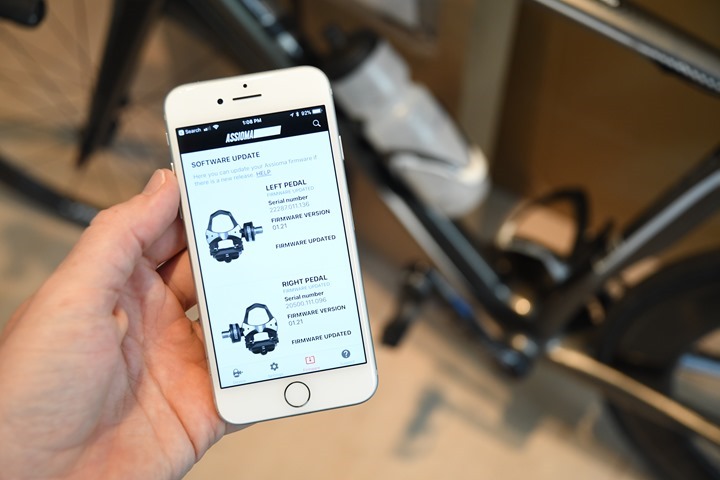
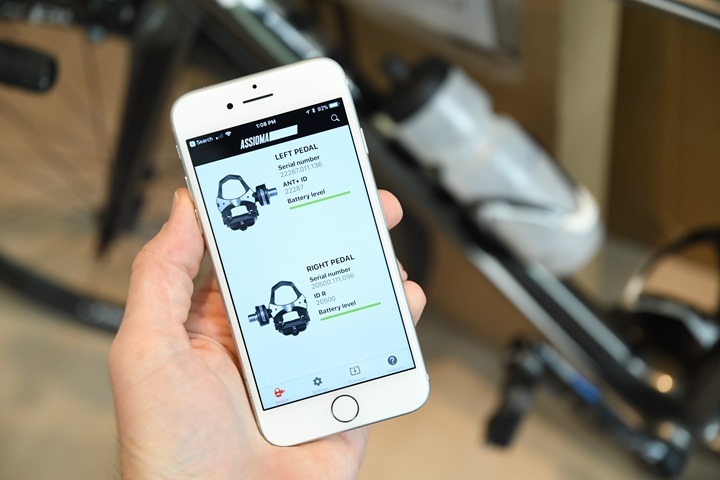
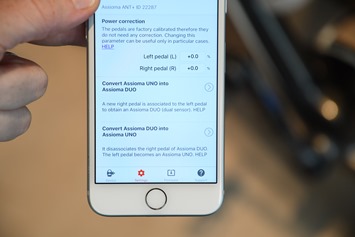
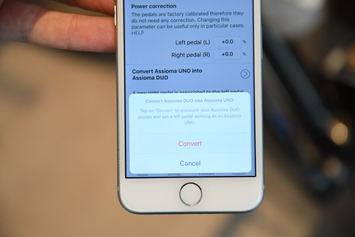


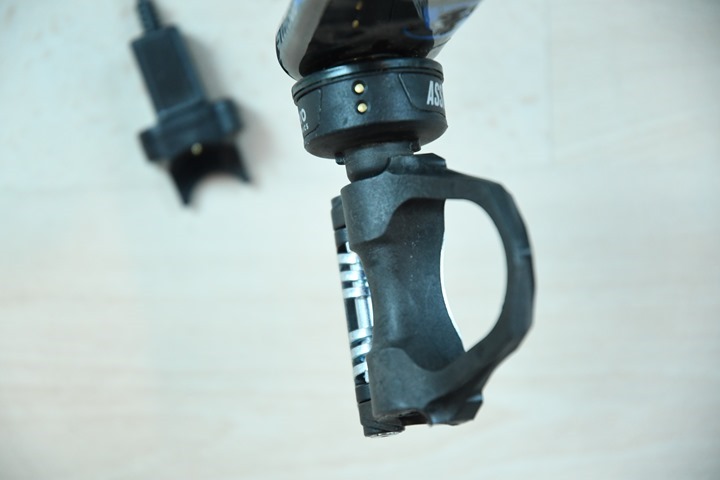
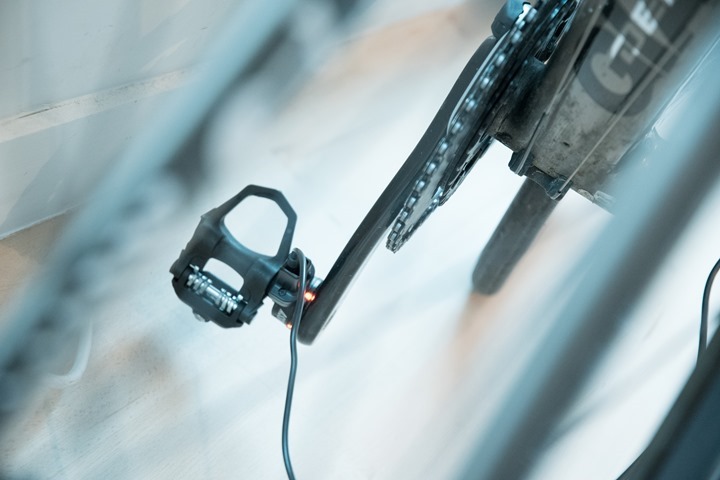
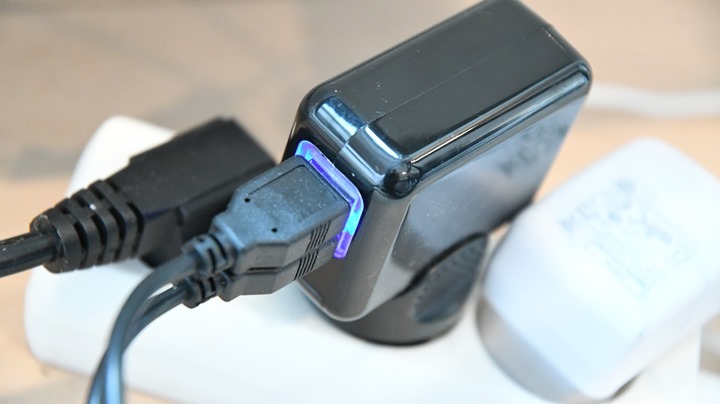
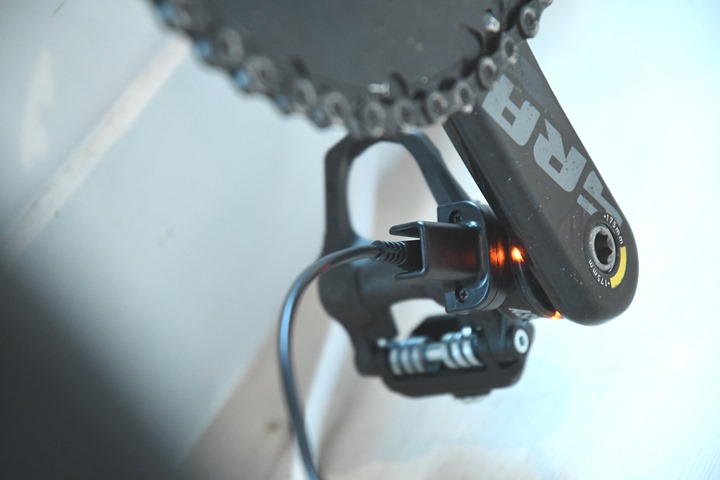
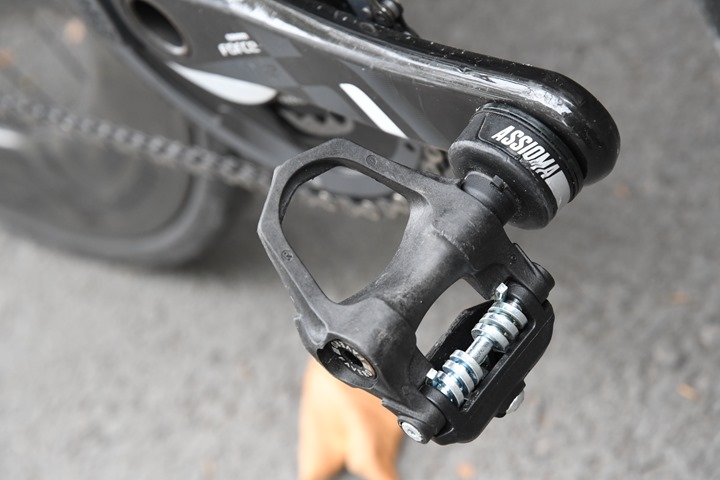
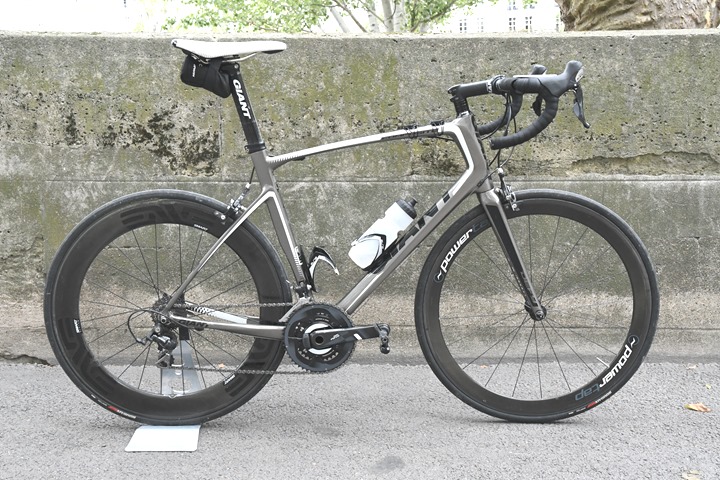
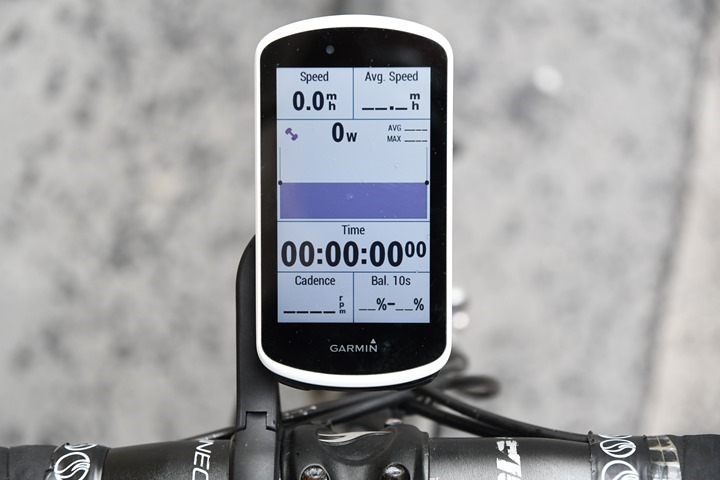














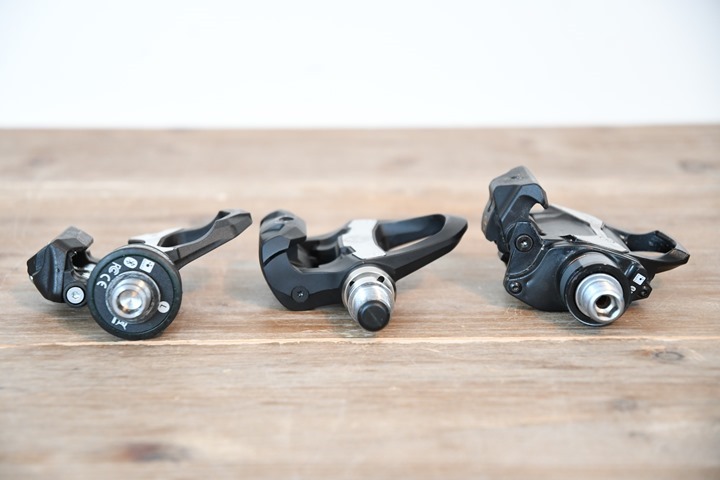
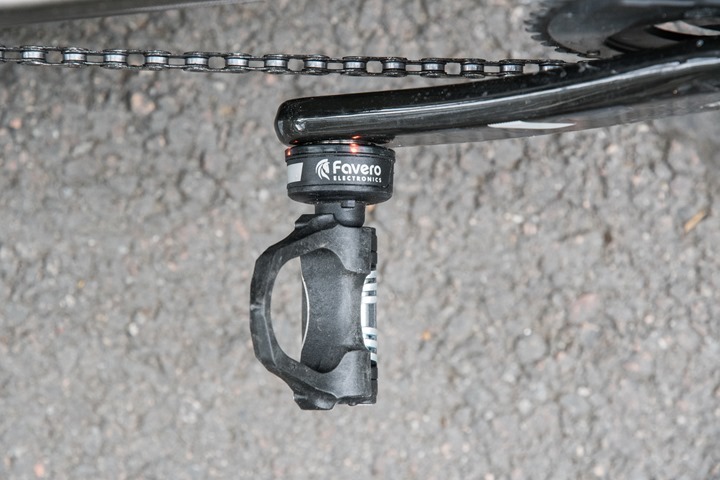
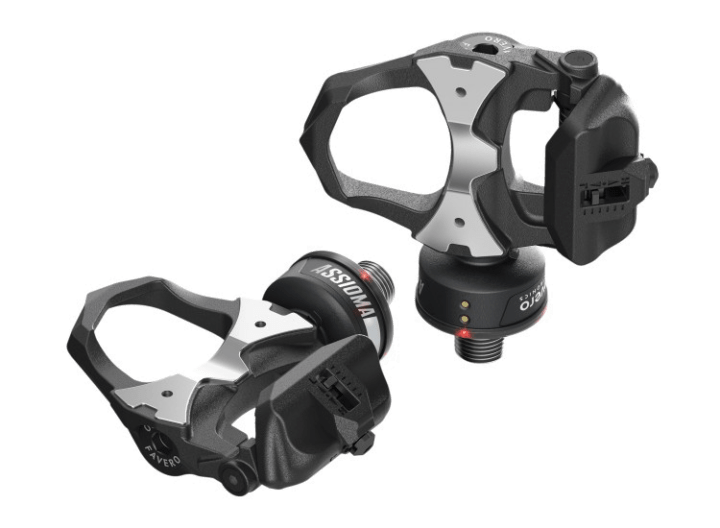
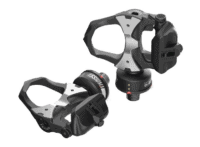
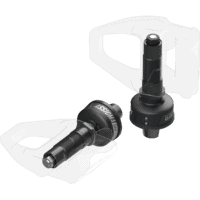





















So In November I charged the assiomas [after following Favero instructions of resetting the firmware] fully and maintained a spreadsheet.
Till Jan 12th, I got 50 hours exact and STILL had yellow left for each battery, and they both drained evenly.
Charged them on 12th, and now, after only 4 hours, it is showing 50%. Some problem again.
I am attaching my spreadsheet as well as a screenshot of the battery today, after 4 hours of riding. Well, the attach does not seem to be working.
Hello Deepak,
Every case is specific, so I’d always suggest contacting our Support team for quick an accurate check our the power meters. Once you’ve opened a Support request, you’ll be able to send us a functional report by simply pairing the pedals to the Assioma app.
In any case, prior to that, I’d suggest verifying that the latest firmware update has been installed.
For further information and support, please refer to the communications from the Support team ( link to cycling.favero.com ) since they have all the tools to detect the possible issue and give you the right solution in the shortest time possible.
Have a good day,
Andrea | Favero Electronics
So Favero asked me to update to 3.42
just did and charging now. Hope it settles the issue. Was previously on 3.0. I think the new firmware is specifically for the issue that I am having.
Hi Andrea,
I submitted a support request about two days ago now and am still waiting for a response, I also followed that up with an email and that too appears to have gone unnoticed.
Could you check whether a request was received and when I can expect a response.
Many thanks,
Simon
can you share how you do a reset?
Ray-
In the 2018 power meter review it states that Favero is working on a firmware update to add cycling dynamics. Any updates on the timing of that release?
Thanks
They’re still chugging on it, but no specific release date. My guess is soon – but given they’re the first to adopt it, I suspect there’s some cross-validation with Garmin going on as well to ensure people can actually use it.
Trying to decide between dual Favero Assioma and new iQsquared coming soon for a Peloton. My girl likes getting double credit on both Zwift and Peloton classes. Says competition keeps her motivated. Leaning towards iQ but there’s a sale on Favero now.
As for today It is difficult to call IQ2 existing product, not to mention it being reliable power meter. Assioma is proven device on the other hand. Decide for yourself.
Agree here.
Great point!
Ended up getting Assioma Duo and she loves them. Especially since they just work! I set them up and she just rides without having to fiddle with them. Can’t say how much this saves me in avoiding “issues”… may try the iQ2 for myself in the future.
Has anyone had any issues with these and Garmin Edge 500.I realise they’re not strictly compatible and I have used my pedals with Edge 520 with no problems so I’m pretty sure it’s the 500 but I get dropouts in cadence every so often which obviously then shows as a dropout in power
I removed one spring and it now has the perfect amount of tension.
For information concerning European buyers, I ordered a pair of Assioma on the clevertraining website in England, in addition to the fact that there was no news for 1 week, I could finally know that there was no availability date and I had for more than 17€ bank charges for my order from France. I therefore cancelled my order and ordered directly on the Favero website.
Same for me, I ordered on 27.02., contacted clevertraining UK a few times, but still not specific date. UK should leave EU on 29.03. so i am worried, what happens with order arriving after this date, perhaps price will increase for customs. I will cancel order too. Pitty that I did not before.
My Assioma wil be delivred on thursday :-)
IMO it is Extremely doubtful that the UK will leave the UK on the 29th of March.. There will be an extension of at least a few months or possibly a few years until a deal is agreed and implemented. And then there will be a transition period of possibly another few years during which nothing much will change.. As a matter of interest are other suppliers or Favero itself any more definite on a delivery date ..??
I also ordered them from clevertraining UK 19.2. I also did not get a specific delivery date. How long did it take to get you a refund. I am considering to cancel order and get them from our local store. They cost a little more but I am realy not certain what is happening with my order at clevertraining UK. I am not sure how can porocessing take 1 month when it says 5-7 days in online store…
My local store also didn’t have them in stock. So I will wait for Clevertraining UK to get their shipment. Ray got the confirmation that one batch of assioma orders should be shipped in friday.
the refund was made within one week
Hi guys – hopefully yours all shipped out yesterday. I think I followed up with a few of you offline as well.
Sorry for the communications challenges there. I think aside for 8 people with recent orders, all Duo’s from the last month+ should be out the door.
Appreciate the support of the site via Clever Training!
My faveros got shipped yesterday and are comming next week. Thank you for your follow up!
I had the same situation in May, which was a shame as I have benefitted so much from Ray’s site, and really wanted to support him.
hmmmmm discount doesn’t work anymore?
Works ok here via Clever Training Europe. Make sure no extra spaces, etc.
For the Duo it brings costs down to 557.99GBP from 619.99GBP.
Didn’t work for USA site. Still get VIP credit ($$$ for future purchases) but discount does not apply to this item. Still works on other items such as ISM saddles and RedShift!
I bought me the Assioma duo about 3 weeks ago (used the link from this site but no luck with any discount). I am satisfied with the pedals and the accuracy of the readings but I am having a situation about with my shoes
Basically I can wear my shimano R321 shoes as is, no changes needed. As for my NEW s-work 7 shoes, well, the normal cleats (look keo red) positioning did not meet the 2 mm requirement (between shoes and pod). I then had to move the cleats all the way inward (toward BB) and now it feels as if I am favoring the outside of the foot, tending to roll my feet outward and straining the outside muscles of my lower legs (2 peroneus muscles and the such). It does not help that I pedal with pigeon toes (you can see me wearing black/red kit here link to youtu.be , starting time is embedded in the video)
What do you think can be done to remedy this situation? I was thinking of cleat shims but that’s not a good idea because I have other shoes that fit me fine and also my seat post is fixed (Look 695 cut to my exact length and I do not want to play with that)
PS: To reduce/limit the pigeon toes action, i am considering switching to grey cleats (4.5 deg instead of 9 deg in the reds)
So, Ever since the last firmware upgrade, and the time I switched off the pedals for travel, they have never been the same. Raised a ticket, and they gave me a special firmware. I still have the issue of the left [or sometimes the right] draining excessively.
They asked me to reset the pedals, and for the first charge cycle after that it was fine, and gave me 45 hours and was still showing yellow. But, after the second charge, again the left pedal is draining too fast.
Anyone else having this issue?
Didn’t see much detail regarding UNO vs. DUO. What are you gaining by going with DUO, does the right pedal add significantly higher accuracy?
The answer is simple: yes.
Actually, the answer is not simple. The answer is, it depends. You can read more about what Ray has to say about the subject in his 2018 power meter review where he talks about single side power meters such as the Stages single crank arm power meter.
I doesn’t depend. Left only power meter accuracy is always worse and numbers it produces always leave major uncertainty. It is ok, as a training tool it’ll give better feedback than heart rate monitor or cheap smart indoor trainer, but I wouldn’t rate it better than +/-5% for literally any single person (it may be worse though).
Not true. Read Ray’s comments as mentioned above. It will help explain it for you.
I read that long time ago. I’m speaking from my own experience and observations of other riders data. My opinion is that properly functioning power meter that measures whole power generated by the rider is significantly more accurate than properly functioning one-sided power meter which always has to guess half of the generated power.
Do the Xpedo cleats provided work with Look Keo pedals? Just trying to see what pedals I can buy for the “other” bike.
Does anyone know if wahoo ever plans on fixing their calculations for Work with the assiomas? I rode 2:10 yesterday and recorded on three devices and the ELEMNT was 400 calories lower than my garmin 935 and fenix 3.
The garmin devices and the elemnt agreed on avg watts and time, 205 and 2:10 but wahoo gave me only about 1200 kJ vs slightly over 1600 for the garmins. 1600 is what I get when calculating manually too.
Anyone have any insight?
Are you sure you are looking on kJ, not calories, on Elemnt? I’m asking because you wrote ‘calories’ in second sentence.
Yup, meant kJ. Sorry in my mind I use them interchangeably since the reason I care about kJ is to know how many cookies I can have later.
Background
I’ve recently got the Favero Assioma Duo pedals and use a Garmin Forerunner 935 to record my rides. When riding outdoors I use an Edge 510 unit as well for display purposes.
Problem
Whilst the Edge 510 pairs to the Assioma pedals as soon as I start recording on my Forerunner 935 the power display on the Edge 510 drops out and isn’t being recognised on the screen. It’s like the Forerunner is interfering with the Edge 510 and is stopping it working?
Has anyone else had this problem?
It sounds like the two devices are competing for the Bluetooth connection. The pedals can only connect to one BT device at a time. You’ll need to connect them with an ANT connection, or at least one of them.
The Edge 510 doesn’t support Bluetooth sensor connections. However, what Scott is saying is in the right ballpark.
More than likely, you’ve got two different crank lengths set. This will cause a tug of war between the two devices using ANT+ (or even Bluetooth Smart). Ensure both devices are set to the same crank length.
There’s no issues in having multiple devices connected to the Assioma pedals. In fact, I did it last night and will do it again tonight. :)
I can confirm I have Bluetooth turned off on both the Forerunner 935 and the Edge 510 and have been using Ant+ (as stated only option on Edge 510). I will check the crank length issue and see if this could be the problem and report back. Thank you for your responses.
Thank you so much Ray. It was the crank length settings that were causing the problems. I swore that I had set them correctly when I originally installed the pedals and whilst they were set as 175mm in my Forerunner they were still showing as 172.5 in the Favero App. I also corrected it in my Edge 510 after trying a factory reset yesterday which didn’t resolve the issue. It now seems to be working :)
Awesome – great to hear!
how do you factory reset the pedals? I’m getting no power readings at all, been pedaling around for an hour and still nothing.
Wait a minute…I thought Favero specifically states that crank length should be done on the bike computer (if it has that option)….and to not use the app to set crank length. Using the app to set crank length is only supposed to be if the computer does not have that option. So are we saying that crank length has to be changed in both places?
I would set in both places just to have bases covered. But the doco says that the bike computer wins.
Fantastic review as always, my go to place for reviews, wonderful service you provide, my question is can anybody help, I have just ordered my duo’s and they will arrive next week, but coming from speedplay this is going to be a bit of an adventure for me, so many cleat options, and not knowing how much float i have set on my speedplay zeros, i guess they are set similar to my mtb spd cleats 6 degrees ?, I want to buy extra cleats, now keo have red, black and grey, 9, 4.5, and 0 degree, but no 6, in the box they have 6 degree float cleats, will this product work with my assiomas from chain reaction cycles link to chainreactioncycles.com or do i have to go for 9degree keo red cleats, I need a spare set for another pair of shoes.
Many thanks.
I recommend the
Look Keo Grey cleats
Which are 4.5 degrees..!!
Yes +1 : I have 2 pair of shoes, both with grey Keo cleats, and they work perfectly.
The included cleats (with Assiomas) might have more float, but… they are VERY difficult to unclip. Using them for my wife shoes on a turbo trainer, and had to decrease tension on the pedals.
Thanks for your reply, just worried about float, coming from speedplay, 4.5 sounds nothing, but look keo does not do 6 degree just 9 degree ?
Hi,
Is there any downside to not removing the existing cadence sensor(s) with the Assiomas? I have two bikes that I’ll use the pedals interchangeably, and would like to keep the existing cadence sensors for when I’m riding the bikes without the power meters.
A follow up question is about any possible magnet interference. On one of the bikes, I have Garmin’s old combination speed/cadence sensor that uses the magnet on the crank arm. Do you think it would cause interference with the Assiomas?
If anyone is using them with an older combination speed/cadence sensor, I’d love to hear your experiences.
Thanks.
No problem. Just have your computer talk to whichever cadence sensor you choose irrespective of how many there are on the bike. Power readout and cadence readout from the pedals are independent so you can use the pedals for power and your existing sensor for cadence, or not.
I did not find option to disable cadence from pedals. I have new magnet-less sensor from Garmin and I rather disabled it and use only cadence from pedals, because It seems sometimes that cadence numbers are erratic, when Edge received cadence signal from 2 sources. But not sure, Edge might just priority to one signal source before other one …?
On the Edge, you can simply toggle the ‘Connected’ option to off, which will keep the sensor saved, but disable it.
Hi Ray, it’s exactly what I did with Garmin cadence sensor and all work fine, but did not find what Heirich Hurts suggests, that there is option on edge to choose whatever cadence sensor I want to use. Assioma is registered as one device, not two separate – power and cadence.
Yeah, there’s no method to do that on Garmin devices (and I can’t off the top of my head think of any brands you can do that on). It’s purely an order of precedence type thing.
Thanks guys. I have the old type Garmin GSC-10 combined speed cadence sensor as a single unit right now, I guess I’ll have to remove it and connect to it as two separate sensors, but as long as the cadence magnet for Garmin sensor doesn’t interfere with the Faveros it should all be good.
Thanks again.
Guys, one other question related to the edge 1030. Once I disable a “connected” sensor, does it stay in disabled status after the Edge unit is restarted, or would I have to disable it every time I restart the head unit?
Thanks!
Ihsan
It stays disabled forever, until you manually re-enable it.
Thanks!
Hmm, I may have to get a new speed sensor :(.
I received my Edge 1030 (finally those frequent flyer miles came in handy for something) and it looks like it only detects the GSC-10 if I select “Speed/Cadence” on the “Add Sensor” page. If I select “speed”, it can’t see it.
Do you guys know of a way to add it as separate sensors?
Thanks
GSC-10 is Speed/Cadence sensor and broadcasts as such (Ant+ Bike Speed & Cadence). I don’t think you can pair it separately as Ant+ speed and Ant+ cadence sensors.
That’s what I was afraid of :(
hello,
after your test, I bought these pedals, I am completely satisfied with them however the cycling dynamics management of Garmin does not seem to be fully implemented when used with a Garmin edge 1030 on which the garmin IQ plugin displays only part of the information.
Do you know if I can hope for a future evolution on this side?
Thank you. Thank you.
We know Favero is working on it, but they haven’t set a specific release date yet.
I cannot find right position of R cleat, so I would like to increase Q factor in attempt if it helps by using 3 or maybe even 4 washers. I have Ultegra crankset And there is 3.25mm (0.246 inches) from edge of inner side of crankarm to pedal while using 3 washers, do you think it is safe?
Does anyone know if the assiomas (duo) have a top limit or does not record beyond 1000 watts, showing any larger value as 1000w?
I never do sprints but was in the mood last week and I was surprised that the most I hit was 1000 watts and the curve clearly shows a horizontal line [it is highly unlikely that I hit the same value for that many seconds and the power curve is supposed to be rounded]
PS: I always do the zero calibration before rides
What device did you use to record the data?
Yes mine go over 1000 watts, but not too often though. :)
I usually record in both a fenix 5x and edge 520 (extended display)
I upload the data from the Fenix 5x; this one is the strava screen capture
Never mind this previous post. The issue seems to be the sub-par strava graphical representation.
This is GC which shows the power curve 100% smooth
Today I received version 3.43. Unfortunately no release notes on the website yet.
Interesting, I checked mine and I don’t have an update. Currently on 3.0 which matches the website. New pedaling metrics maybe?
I received firmware 3.43 as a fix for a known problem when pairing assioma via bluetooth. It happens that on firmware 3.0 when you coasted, garmin displayed whatever power and cadence numbers you had just before coasting (instead going to zero). This happened to me on Garmin fenix 5 and just over bluetooth, ant worked just right. Learned from other users in trainerroad forums about it, opened support request to favero and they enabled this beta firmware for my pedals.
They are able to enable it selectively based on your pedals serial numbers that´s why everybody is still on 3.0. By the way, no additional pedal metrics yet, I guess they have them disabled on purpose while still working to final release.
Are you a beta user? Maybe that’s why I got it.
I have a Wahoo Bolt so I don’t get the advanced dynamics. And seen that I got the update after my ride, I will have to wait till tomorrow and record it with my fenix 3 to see if it records extra data. But to be honest, I don’t think that we will get the advanced dynamics with this update – that would be more something like 4.x
Hello. I have had the Assioma for one week. I have used it together with my Quarq Dzero last 3 rides to compare / evaluate accuracy. I find that they measure exactly the same average on my intervals seated (TT). But: standing out of the saddle, the Assiomas measures systematically higher watts. Below is the graph from a pretty flat TT course i rode, but standing in one of the hills. Dzero vs Assioma was identically in average, but in the hill (as you see), there is a big difference. This translates to a repeated and bigger average difference when I ride intervals in hills and standing more. Which one is correct? Anyone observed this? Why is this?
Edit: I have the Assioma Duo.
Have you observed it more often and on longer intervals than 35 seconds?
I did another run, a bit longer. Same hill twice, one time standing, one time seated. Both calibrated before start. There is a 20w difference between them. The Assiomas showing significantly lower watts when seated, despite 5sec faster time. Dzero showing a little higher watts seated on the 5sec faster time. You can argue for both beeng correct: “takes more watts to do the same hill standing” / “takes more watts to do the hill faster”. Later i did my 25min TT run, both showing excactly 292w. I find it a little disturbing that two systems that advertise their accuracy, actually shows me a 20w difference.
It is hard to draw conclusions when only two sources are being compared. From the look of it Dzero power data makes more sense to me and I’d bet it’s the correct one. Maybe Assiomas are undertorqued a bit (or much)? Or there is some grease outside of the threads between spindle and crank arms? I suppose those may potentially cause some weirdness when pedaling style is more violent and less regular. Try cleaning the spindle and threads and using more torque when reinstalling.
I meant cleaning spindle and crank arms, where there is no thread. Leave the threads (and only them) greased ;)
Is it possible to connect the Assiomas to two different reading units? I ask because I’ve a bit of a hustle: I dont want to change my Garmin Edge 130, but it cant show power balance. My fenix 5+ on the other hand can show/log balance.
So best case for me: Seeing my watt output on the 130 but being able to analyze the balance afterwards.
Thank you already!
Yes it is possible. I use mine connected simultaneously to Garmin FR 910XT, which I have a handlebar mount for, and to fenix 5X worn as a watch.
I have seen a few comments about somehow getting cycling dynamics from the Favero Assioma Duo by using a Connect IQ app with compatible Garmin computers. Where can one find this IQ app? I have searched and can’t find it. What metrics are currently supported? Are these to be expanded?
I believe Favero will be releasing a firmware update to provide native support for ANT+ cycling dynamics without any C IQ apps.
Ray mentioned (on another post) the update is “imminent”…
Just received my Favero pedals this afternoon (Thanks Ray for the review, and the CT link!).
Just in case anyone’s worried about the clip out issues, Looks like Favero May have changed the springs (mine came with thin, black springs) and they’re quite easy to clip out of. In fact, I had to add some tension to the springs because it felt like too easy to clip out.
My other worry, “how will they feel after 7 years of SPD-SL use?” was gone after a couple of clip ins and outs on the trainer as well. The hardest part of the day was removing the old pedals from the crank arms, seriously, I spent like 30 minutes trying to get them out. Once cranks were free of pedals, it was a breeze.
I’m happy :)……. as long as I don’t look at the power numbers and wildly changing L-R balance..
Read recently that Favero were offering to supply a set of replacement pedals with lighter tension springs for $100+P&P.. …!!??
I don’t remember reading anything like that but perhaps the newer production may have switched springs perhaps.
It’s pretty clear they realized there was a problem with the tension initially.
Over a year and the Right Pedal is “not too bad” getting out of .. the Left is still a struggle.. They have certainly not eased as much as I expected..
I purchased these pedals through DCR/CleverTraining. They were delivered to Toronto (Canada) within 48h as I used the express shipping option.
I second the previous comment, no issue with the clipping out, the tension seemed right to me.
Question: I’ve used them on my electronic trainer (good old Computrainer) + Trainerroad. I did 2 25 minutes intervals @ 85% estimated FTP. The Favero consistently give me higher watts (+7-8W or about +4.5%). During the recovery/easy intervals, the difference is a bit higher +10W so now this is >10% difference.
Is this considered acceptable? I’m not sure whether I should expect the same power numbers given that power isn’t measured at the same spot.
Anyone with a similar experience?
My KICKR v2 shows ~10W less than my DUO pedals and it seems relatively consistent. I assumed that the error is roughly within the tolerances of the devices as well as the differences in the measurement location. Plus the pedals were always on the higher side, which made sense for location being measured.
Overall I feel like the consistency I see between KICKR and DUO to be quite good and would guess many others have much wider variation and wonder which of their devices is wrong.
I always love to think of the joke I read somewhere once — “A man with a watch knows what time it is. A man with two watches is never sure.” (Segal’s law according to wikipedia) and how well it follows to having multiple power meters.
So 7-8w (or even 10w) higher isn’t super unusual for pedals over trainers, due to drivetrain loses. Of course, it depends on the wattage. If we’re talking 250w or 300w, then in my book that’s totally acceptable.
If we’re talking 100w, then that’s tougher. Both in terms of acceptability, as well as accuracy in some cases at those wattages. Generally speaking, the higher the wattage the more accurate (at least in my experience, and in talking with companies).
Food for thought: link to dcrainmaker.com
Sadly we are not talking 300W!
I will compare again. Pretty happy with those though. Thanks both Tim and Ray for the responses.
Hey Ray,
Thanks for all your insights as always. I just received the DUOs a couple of weeks ago and have been using them with my Wattbike Atom. I’m finding the power on the DUOs to be understated by ~20 watts, if not more, and it fluctuates throughout. For example I did an hour long sweet spot workout – Assiomas NP 138 watts vs Atom 161 watts. Going by the comments, it sounds like pedals should be expected to overstate power if anything? Also, tried using the pedals to control power in Power Match in TrainerRoad but that was a disaster, with power drop-outs and it felt almost impossible to do intervals given the power discrepancy, even with having reduced my FTP/workout intensity.
I’ve done everything that’s recommended in terms of set-up, e.g. zero offset, specified crank length etc. My FTP is usually 204, which has followed a logical progression as a result of TrainerRoads plans, so a ~20 watt reduction seems huge and I’m pretty much back to square one! I’d totally expected to have a difference, but was hoping by not this much! Especially as I have an Ironman looming and was planning to use the pedals for that. If the Atom is so wrong, it suggests the same for all the Wattbikes I’ve ever used as I’ve maintained consistency in terms of power settings here.
I’ve raised tickets with TrainerRoad, Favero and Wattbike, none of whom have been any use to be honest. I wouldn’t usually make such a fuss, but given the cost and the claimed accuracy of the devices this is very frustrating. Current feeling is give up and try send the pedals back and just continue with usual training on Atom, even if overstated power. Wondering if there is anything else you would recommend I do to try reconcile the power/get to the bottom of what’s going on?
Any help much appreciated! Thanks in advance for any replies.
First off all, don’t look to hard at the 20w difference… back at square one? If your atom is showing you 2000w and thats what you trained on and the Assioma show you 1000w nothing has changed and you are at the same exact place, there is just a different ‘legenda’ look at is as Miles vs Kilometers, the actual distance doesnt change the way you measure it does…..
That said, 20w difference seems high but I had a similar experience on my Direto trying to match the Assiomas to the Direto… but I gave that up and settled on the Assioma’s as ‘the truth’.
You could however up the reading of the assioma’s, they have an app that will allow you to up the amount of power read but a % for each pedal… This way you can get very damn close to what you’d want.
As far as I know the last app also has a way of checking/configuring the calibration of your pedals in case you aren’t trusting them.
Last thing you can and I assume you did (but didnt mention) is make sure you do a good zero offset, going from outside to inside the temp difference and things can be pretty big causing weird readings (for me atleast).
Hope some of these suggestions help you :-)
That’s awesome, thanks a lot for your message and getting back to me so quick.
Great analogy! Totally agree, I won’t read too much into the 20 watts in terms of training impact – training has gone really well over the year, I guess I’m just confused by some of the accuracy claims, i.e., Wattbike’s “unrivalled accuracy”…what would that even mean in this case! I love training with data and stats, just wish I knew more about verifying it and how the power is calculated.
No worries, I have done a zero offset each time. The pedals haven’t even been outside yet so I don’t have that interference to contend with…more fun for another day I’m sure! I’ll try your other suggestion of adjusting the power for each pedal in the meantime, then at least will have consistency and that’s an improvement.
Thanks again, happy training! :)
Hi,
Tried using your 10% code for these pedals at the CT site, and no discount was applied to my cart.Trying to contact CT now. Is the code in your review still valid?
Thank you.
Bruce
Check out reply #735.
The coupons won’t work on these pedals.
Obviously the price on these is great considering the functionality they offer and the price of the competition out there. Do we know if they’re working on a new version of these? Would like to pull the trigger on them but seeing as how these have been out for almost 2 years I’m wondering if I should hold off.
Here is Ray’s answer dated end of April regarding the Vector 3 and the Assioma:
”
I wouldn’t expect any new power meters from Garmin anytime soon. Historically Garmin has always timed announcements for power meters to Eurobike (or previously Interbike), and Favero has historically been on a two year cycle, usually timed to July (a bit before Eurobike).
”
I do not know if they are news since then.
Just got the pedals (Uno). Same story as below via Clever Training UK – ordered on Monday, (“3-5 working days”, “pending shipment” on the Wednesday), phoned up and unable to tell me when they would have availability. Really wanted to support the site, but had to order via Giada at Favero – she did an expedited delivery and I had them in 2 days…Great experience so far, and thanks for the review Ray.
About to take the plunge on these but need to confirm they’ll work ok on a fixed wheel setup?
Fingers Crossed…
No worries about fixed gear – I use my Duo’s only with fixed gears and absolutely no problem.
I have used these pedals for 4 rides since I received them, alternating between my triathlon bike on the trainer and my road bike outside. Both bikes have 175mm crank arms and I use with my Garmin 520 in both situations (I have checked multiple times both the Favero app and Garmin are configured at 175mm). I perform the calibration before each ride. The power numbers on the trainer (Lemond Revolution) appear to be in line with the estimated power from Strava and when I was using a speed sensor on with TrainerRoad. When I use the road bike the numbers are inflated. Save for a couple of sprints, the outdoor rides have been easier efforts on flat terrain with little wind, yet the average power is about 30% higher than I would expect. Is there something else I need to do when switching the pedals between bikes?
I both these a couple of months ago and used them with my edge 520. They displayed cycling dynamics with the edge 520 right out of the box. I upgraded to the edge 530 and cycling dynamics is no longer working. Anyone else experience the same thing?
Cycling dynamics such as left/right power balance, torque effectiveness.
All showing ok on my Edge 530.
For example, link to connect.garmin.com
All show ok (basic dynamics such as left/right balance, torque effectiveness, etc) on my Edge 530
link to connect.garmin.com
Anyone heard anything about the full cycling dynamics firmware release for the pedal?
It doesn’t seem to be working on my Edge 530 either. Is there something in the setting that needs changing?
Those are unfortuntaely not Cycling Dynamics as the rest of the industry calls them. That’s just Garmin’s re-brand of things they already branded once before.
Cycling Dynamics includes things like seated/standing time, platform center offset and such.
Whereas Left/right balance, torque effectiveness, and pedal smoothness are all basic power meter metrics in terms of the industry standards.
As for when Favero will release their official Cycling Dynamics support, or what specific metrics they’ll support – that remains to be announced.
Garmin Cycling Dynamics on Assioma should arrive on july 22…
I finally got myself a set of assioma duos, firstly coming from speedplay this was never going to be easy, so worried about float etc, I got my set from Bob at cyclepowermeters.com in the uk, he matched clever training for price, and gave me so much advice, and a few trials on the turbo trainer, I got my cleats set up, just using the standard 6 degree that came with them for now, but all good, connects well with zwift, and 5xplus, only problem i’m having is since i have had them my ftp on my watch has disappeared, i’m guessing this is a Garmin 5xplus
bug again. if anybody is using these with a fenix watch do you see your ftp on the training status ?, i have everything else, training load,etc,
The day after the Etape du tour.
Dear All – I am considering the purchase of the Favero Assiomas. I currently ride the SPD Sl Ultegras which are super smooth pedals and a charm to cleat in and out. Now I read the performance of the Assiomas are fantastic but the online forums are full of people having issues cleating out of the Assiomas.
I read here that the newer / recent Assiomas coming out have a different spring (black vs silver) and this has largely addressed / solved the problem.
Can some of you who have bought these recently confirm this and your experience? Thanks.
Regards
Ragtag
I have no issues. Mine have the black springs. Purchased a couple months ago.
Thanks
Mine still came with red cleats (bought them like one year ago). Also used Ultegra SPD before Assiomas (with yellow cleats). They are somehow different when clipping in (Ultegras feel smoother) and thus in the first few rides I struggled a little in this chapter – but nothing too cumbersome. Once you get used to the new feeling, it is second nature, really! No problems at all today.
Ok thanks. Thats very useful to know. Ultegras are so smooth that I keep on thinking maybe the Rotor 2in Power or power2max will be a better bet. But Favero have that convenience factor!
I purchased mine about 8 months ago. I am using Look Keo cleats. I feel like clipping in and out is just as easy and smooth as using the Look Keo pedals.
link to cycling.favero.com
New cycling dynamics firmware is _finally_ “here.” Has anyone managed to get this flashed to their pedals yet? I can’t seem to…
If you read carefully, you will see that it says 22nd July……….today it is the 18th. So just wait for 4 more days
I just hope this new firmware revive my left pedal… died 15 days ago… I have the feeling I’m being ignored by Favero SAT cause my warranty ends in a week.
Strange, I found Favero customer support to be very good. Replies to emails tended to take 24hrs though.
Cycling Dynamics is here, but smoothness and effectivenes disappeared from GC, I thought that its caused by GC, but there is something wrong with recording new cycling dynamics –it vanished from other platforms too – I used cyclinganalytics, which showed these values detailed in a graph and now smothness and effectivenes are gone replaced by power phase. Ray can you check that?
I’m having a hard time getting a technical response from Favero. I purchased my DUO pedals roughly 4-6 months ago and now pedal has movement on pedal shaft. Anyone with suggestions getting response from Favero and if it is repair that can be made by local shop.
Sounds like the movement you get when you take them apart to clean/grease. Once I tightened the bolt and cap with a torque wrench, everything was solid again.
Check that the outside end cap is snug by using a 6mm hex key. Be really careful that you don’t over tighten though, as you could strip the threads. It only needs to be 2-3nm tight. Shane Millar AKA GPLama did a great YouTube vid on how to service the pedals.
When I first serviced mine, I noticed there was play in the spindle but as soon as I fitted the end cap to torque the play was removed.
Yes..noticed that when I fitted new pedal body ..how often do you service/regrease the pedals..??
I noticed the same thing as everyone else, it’s actually the end cap that snugs everything up. However I’ve found that in my case my left pedal body seems to have developed play at the inside bearing (replacing the bearing doesn’t help so I presume it’s actually the pedal body that has stretched or is just out of spec). My bike has been clicking the past year or so and I’d assumed it was BB related but it’s actually narrowed down to movement occurring in my left pedal that can’t be eliminated by either new bearings nor tightening of the end cap. I’ve ordered a new left pedal body which hopefully will address the issue.Hopefully it’s not an improperly machined spindle as the replacement for that includes the entire sensor/spindle assembly and is really expensive. The difference between this and the normal movement that is fixed by the tightening of the end cap is that the play I experience is perpendicular to the shaft, while the play I presume most others are experiencing (and which is corrected by tightening the end cap) is parallel to the shaft.
This may be a confusion of terminology but if I understand correctly what you mean by the end cap, that is, the visible, external, allen key tightened part, that does not keep the axle tight in the pedal body. I know because one of my pedals developed a weird random crack some time ago and needed to be replaced. Favero took very good care of me I must say. Well, after initial minor hick-up in communication. Anyhow, the function of the end cup is mostly esthetic and weather sealing. If you remove it completely, you’ll see a regular nut that is holding the axle tight. It is recessed quite deep in the pedal body so you will need a socket key to tighten it. Size 8 or 9 mm, can’t remember. I think there is a recommended torque value for that but can’t remember what that was either. Basically just make sure there is no play without going too crazy on it and overtighten. Repeat as often as needed.
Interestingly in both my drive side and non drive side Assioma pedals, it does appear to be the end cap and the end cap alone that keeps the pedal body in place laterally on the spindle. The 9mm nut holds the inner race of the outer bearing tight to the spindle but the outer race of that bearing is not a tight fit in the pedal body and the pedal body can float back and forth laterally. When assembled without an end cap, the entire body can move back and forth along the direction of the spindle. When the end cap is added, it locks the outer race of the outer bearing to the pedal body, thus the entire pedal is being kept laterally in place solely by the outboard bearing. This means there is no preload on either the inboard or outboard bearings, and lateral forces on the outboard bearing occur only due to the rider applying force to the pedal in a direction that has a lateral component. I’ve sent a message to Favero support seeking clarification.
I’ll be moving to these pedals soon.
I’ve been using Shimano 105 road pedals for the past 5 years and Shimano spd-sl pedals blue version During the past year.
Am i going to face a very different experience in terms of clipping in/out, foot angle rotational movement range, q factor differences, and risks of clipping pedal when turning?
If I want to use the same shoes on multiple bikes without needing to swap pedals before the ride, what type of pedals can i have on my non-assioma bike? Look keo? Any other options? I’m basically asking if the included pedals with the assioma pedals may be used with other normal non power pedals?
I too used SPD-SL for years before using these pedals. You soon adjust to them. As for the Q-factor there is very little difference and i certainly didn’t notice it when changing to the Favero pedals.
I find them slightly harder to clip in whilst pushing off sometimes, but i had same trouble with the SPD pedals. Clipping out some people have had issues, but myself i haven’t. Pretty much same force/direction to unclip as the SPD pedals.
I used the yellow SPD cleats in the past.
Sorry not sure about the last one about the cleats same between different bikes as i just change the pedals across as only takes a few minutes.
Isaac,
I made same the same switch. No more than 2-3 rides and you’ll fully adjust. I made the same conversion and did not find it to be a problem. The only thing to keep in mind (in my case at least) is that Assioma pedals spin a little too freely on a “push start” so you may have to keep that in mind when you’re starting at a red light.
And yes, if you’d like to use your shoes on multiple bikes, it’s best to swap pedals on other bikes to look Keo compatible pedals as well. That’s what I’m doing. Xpedo pedals should use the exact same cleats as far as I know, but any keo compatible pedal should work.
Hi guys,
Does anybody know how the DUO behave with sustained vibrations? I would like to mount them on a Cyclocross bike.
Thanks!!!
it is almost impossible to consider the use of these pedals in cyclocross, the mud or stones that would come to be placed around the cleat would make it impossible to lock the pedal.
In addition, this type of cleat is very slippery when walking.
It is possible to hack the pedals to take a SPD pedal body.
link to forum.trainerroad.com
Is Clever Training UK for real?
I tried hard to purchase the DUO from them, but they denied my first order because its was “riskified” and didn’t even bother telling me until I inquired about the status a few days later. Gave them a second chance but it didn’t go through either, and they showed ZERO interest in solving it (I suspect the order was actually not profitable to them). Apparently they don’t use 3D Secure even if it’s now mandatory in Europe. Two hours wasted.
I’ve never seen anything like this.
Ray, I would have loved to support your site (and the discount was sweet) but may I suggest you should work with people that care about business and are a bit more professional in running a shop.
I have now had the duo pedals for 1 year. I use with Lezye Super GPS bike computer. They are my first power meter and I Really love the pedals. I have yet to ride in rain as I have had bad experiences with a GARMIN watch that was supposed to be waterproof but failed after warranty. One thing to note is that it is much easier to get product information here or on Shane Millers-GP llama YouTube channel than through the Favero customer service.
Hi Ray,
I have 3 powermeters in use – P1,P2M NGeco and Tacx Neo – which are all pretty much in line. My first tests with the Assiomas show higher values. If I scale the Assioma data with 94% I get a nice match with the Neo. Your analysis shows a nice fit but you also mentioned in another post that power measured at the pedal (Assioma) should be up to 4-5% higher than measured at the drivetrain (Troubleshooting Power Meter and Trainer Accuracy Issues). I did the offset, checked the firmware, the crank arm length.
The Assiomas allow for a scaling through settings in the app, i.e. I could adjust power to 94%.
Any thoughts, experience from others? Rgds
I think your discrepancy may be partly due to the fancy way that the Assioma firmware factors in angular velocity into the power calculations. link to cycling.favero.com
They claim that this may “correct” power values upward by a small fraction. I think that Ray discussed this on a blog post when it was first released.
Exactly same “issue” here.
My Assioma are 5-8% highter than my Neo 2…
The M6 bolt on my Favero pedals has become stuck. Anyone had this problem? I noticed some play in the pedal body, approx 2mm so went to tighten it. I used the correct 9mm socket wrench (CH9) but noticed the bolt would keep turning either way. Would not tighten or loosen. The bolt fits in the wrench just fine and is not rounded. Most be a problem with the thread. A video of the problem: link to youtube.com
If you have a solution let me know.
The same has happened to me. The black M6, 9mm nut has a little resistance still, but just spins on the same spot in the spindle, won’t tighten inwards or loosen outwards (mine is on the right hand side pedal with the black reverse thread nut). I’m guessing the nut has somehow stripped it’s thread. I used a torque wrench and didn’t even use 6nm of torque, when it’s suppose to be done up with 9nm I believe.
Has anyone else experienced, or managed to fix this issue?
Have you ever find how to fix that? Was trying to change bearings on my assiomas and left pedal was ok, but right pedal M6 nut also appears to strip its thread. Cant tighten, can’t remove it. Just spins on its place.
It happened exactly the same with me! Changing the bearings in the left pedal was fine, in the right pedal got the same problem with the M6 bolt that does not tighten or loosen. It got stucked. I used a torque wrench. I’m heart broken 😞 I have just contacted Favero support, but my hope is limited. Glad that I’m not the only one though, I’m feeling pretty bad.
Sorry to hear yours have suffered the same fate Art and Goncalo. I’m sure it is a manufacturing issue with the ‘special’ bolt used. Seems you need to destroy the pedal body to access and get the nut off. I contacted Favero support and was not really offered much in terms of a fix – free labour for them to do it if I recall correctly, but that required me to purchase the spare pedal body and send the pedal to them – not really worth it. I had an event at the time and just ended up having to buy another RHS pedal to be 100% sure the original one didn’t fail me at the event. Pretty disappointed in Favero’s lack of willingness to stand behind what is otherwise a faultless product – In my humble opinion.
Thanks Russ. Yesterday I was feeling horrible, thinking that I’d be the only human on earth that managed to break an Assioma 😅 the pedal thankfully is tight and I still rode this morning, the power seems fine, but that nut will not get out anymore. Well, I’ll have time to save money until the bearings die. I love these pedals, but this is really unfortunate.
Well, here we go. Ordered the Duo this afternoon from CT. Seeing sporadic dropped data from V3 duals, and rather than try to troubleshoot and replace caps, contacts grease, etc. I did find that using a single battery instead of two helped with consistent readings on the V3. I’m just ready to try something new and not worry when the V3 will explode. :-)
Dennis
Stay away from FAVERO!!! Unacceptable service and customer after market service!!!
Care to elaborate?
I would have to disagree.
They took very good care of me replacing broken pedal body free of charge. Very fast and free shipping to Canada too!
I disagree your sentence
Eric
Hi guys,
can anyone help me with this problem? It occurs irregularly both indoors and outdoors. The difference is always about 1/3 of the true value. Thanks a lot!
Just bought the Uno. Road with them outside and got power numbers that I expected on my Garmin EDGE 500 and Garmin 735xt. I rode on my cycle ops fluid 2 trainer and the numbers were much lower, a good 60-80 watts lower at the same cadence/HR.
Anyone else have this issue? I figured power was power and I should have consistent numbers on the road and on a trainer.
I purchased the duo’s but for some reason I can not get them to be close to my wahoo kicker?
Set of Duos ordered from CT, thanks for the code DC. Along with my Fenix 6X Sapphire order a few weeks ago you’ve saved me a fortune :-)
Upgrading to thee from a set of dual Vector 2 which have definitely started to sometimes give me a few headaches and seem to eat batteries now!!
Would love to hear how you liked them. Trying to decide between the Duo’s and Garmin Vector 3’s.
I’ve done a couple of turbo rides so far and really pleased.
Nice to still get cycling dynamics (minus platform centre offset) and as I also connect to apps it’s handy having Bluetooth. After my Vectors started eating batteries I’m loving the fact they’re rechargeable.
And a total doddle to install!! Obviously still very early days, but no regrets going for these. With DC discount they were only £560 for the Duo which is a bargain!
This might be a first, but Assiomas are $577 on the Black Friday sale. Favero’s own online shop.
$704 I’m looking at.. is there a discount code some where…..?
I see $578
Post a link..!!
link to cycling.favero.com
link to cycling.favero.com
Getting worse …. $766
Must have been an offer in USA only…..??
Perhaps. Does the difference equal/close to VAT?
Discount roughly 10% if it helps compare better.
So, after about a year of use, I had the issue of uneven discharge of battery between left and right pedals. They sent me new spindles in April.
I installed the new sensors that were sent in April. Been travelling a lot, and have done hardly 30 rides since than. My last ride was November 10th, at which time it was almost fully charged. I think I had charged them in mid October. Today, when I took it out [8th Dec] it was completely discharged. Is it possible that the pedals can get fully discharged in 2 months? Or, is it some error again?
Anyone can give an idea as to how long it takes for unused pedals to discharge completely?
I have Uno pedals. I want to ask that when I change power scale factor by %5 is it actually %10 because it doubles the left side?
Just ordered my Duo Assioma. I don’t have a bike computer/gps currently. Is it possible to use my phone (apps) to show power during a ride and record it?
Maybe. I hear that the Strava app provides mediocre power meter support. Having said that, I would urge you to go ahead and get a head unit. Either the Garmin 130 or 520 Plus can be had for $200 right now and both support your Assioma.
There is an inherent limitation in BTLE that is ultimately going to trip you up—it has a one-sensor limitation baked in. There are a few BTLE products out there that broadcast on two BTLE channels and somehow funnel that to one receiver. With Ant+, that limitation is removed. Sensors just broadcast and a practically unlimited number of them can be received by any Ant+ watch or head unit to which they are paired.
I ride with Heart Rate, Speed, Power, Temperature, Radar and Headlight sensors all of which converse with both my Forerunner 945 and Edge 920 Plus. Even if I dropped all of the fluff I could not feed all of the “essentials” (HR, Power and Speed) to my phone. Of course the phone can intuit speed from its GPS and, while that is pretty solid over the long haul, it can be pretty inaccurate at any given moment.
I have been holding out for “affordable” Vectors for years and very nearly bought the 3’s when they recently dropped to $800 but didn’t. Today I bought the Assioma’s on Clever Training for $519.99. Free shipping. No sales tax. I am really excited about finally riding with power onboard. As much as I like the idea of staying 100% in the Garmin tent for support reasons, it is not worth a 54% premium especially when Garmin support makes up most of the answers they give you on the fly anyway.
I’ve had Vector 2 pedals for a few years and recently moved to Assiomas. Don’t regret it one bit! Only thing you lose is platform centre offset which I found to be pretty useless anyway as there was no consistency with the data.
I get the auto calibrate prompts on my Fenix 6, just waiting to see if I get low battery warnings as well. But overall the integration with Garmin Connect has been flawless. And they’re ridiculously simple to install, although that’s obviously similar with the Vector 3.
Hi – how did you get such a good price? I am seeing $ 649 for the duos on CT. Thanks and happy holidays
They had 20% off when you put in the cod hooliday20 not sure how long it lasted.
Has anyone in the U.S. purchased these directly from Favero? Looks like they charge no tax and shipping to the U.S. is free. I typically order from CT, but in NY, tax is an extra $62 or so. Would be nice to avoid that if possible.
Bought the Uno back in May direct from manufacturer (extremely responsive and helpful) and has been problem free until the dreaded “Error 99” occurred a week ago. Excellent communication from customer support who are sending me new spindle (but didn’t answer my question of “how much of a problem is this generally?”!). Adding this to the comments as I didn’t find any other mentions of this here, though it does seem a recurring theme on the Facebook page. Any others in this situation?
Doesn’t look like that coupon code works at Clever Training
Hi Drew-
Unfortunately Favero has disallowed CT from accepting coupons on Favero. So, in order to solve that, CT just lowered the price an equal amount to the coupon to get folks the same effective price. There’s a bunch of discussion up in the comments section about it. Kinda a solid mess when it started a year ago.
Sorry for the confusion there, but thanks for the support!
Cheers!
Hi
Need help
Do you why the pedals won’t connect to the Fenix 6 and the Garmin 1030 at the same time .
Thanks
Hi!
Fantastic review!
Is there a way to see some stats and analytics on iOS? And Cycling Dynamics?
I just did my first ride on the trainer and paired my Assioma duo to my Wahoo element head unit and during the workout my watts from the trainer were way lower than the Assioma. for instance if I am doing a 100W according to the trainer the Assiomas are reading between 133W-140W with a 30sec average. I am using a Wahoo wheel on trainer. This does not seem to be an offset issue because at higher wattages, say 300W on the trainer the Assiomas register ~360W.
Has anyone had this issue?
Is this after 15 minutes of warm-up? Were trainer and pedals calibrated after warm-up? Did you perform advanced/factory spindown on Kickr Snap?
Just to say i had the quick discharge when off problem and favero sent a firmware that solved the issue.
Well, I am going to describe my problem. 2 years and 7 months of working properly and I have a problem with my left pedal, the battery is off and it doesnt charge. I contacted with favero and after some tests the issue is not solved. Which is the solution? Send me a new left spindle but with the cost of the spindle sensor and a 20% off. I dont think that is a good solution, the battery life has been around 2000 hours.
Watch out if you plan on just replacing the spindle. When i went to replace the spindle the bearing was attached to it and wouldn’t remove. Other pedal it was changed quickly. Probably best to check first especially if not removed since new..
I ended up sending my pedals to Favero and they fixed them.
Does anyone KNOW if the Powertap P2 cleat (purportedly by XPedo) and the Assioma cleat (also purportedly by XPedo) are identical/interchangeable? The Assioma cleats are more expensive by $5 and if there’s no reason to pay more, I’d rather just buy the Powertap cleat if there’s no difference. CleverTraining says they’re different, which I know I could trust, but I’m skeptical…looking at them they look identical and Ray seems to indicate they’re identical soooooo…
I’ve been using the Keo cleats with good results.
Question on a static weight test.
What does adding or subtracting a % do in relation to not adding it? Will + increase the wattage or decrease it?
I’ve had Favero Assioma Duo pedals for two years, and this winter used them as the power source for my controllable Wahoo KIckr18. It seemed that the pedals consistently read higher, and I wanted numbers to match.
I did a static eight test, and had to adjust by ~+2% on each pedal. I did a spindown via Zwift & Wahoo, did a zero-ofset via the Assioma app & Garmin. Now the numbers match almost perfectly, avarage & normalized power are within 1w on the Assioma’s & Kickr (recording from two different Garmin’s). So when I did the +2% on the pedals, did I make them read less power than they did before or more power?
Thanks
Has anyone heard ANY word or even a hint about when Favero might start shipping again? Obviously there are extenuating circumstances but it’s been total silence from dealers and Favero about even a vague timeline. Anyone?
I would send them an email, as they are just starting to ease back on lockdown. Unlike the USA, they need “a note” as to why they are leaving home, so I would say it’s not as free over there.
Check their website. You can join on a list to order the pedals – in about “40 days.”
I got my assioma pedlas om wednesday from a local bikeshop, cykeltjanst, in Stockholm area,Sweden on this wednesday. Don’t now exactly when they ordered them, probably 1-2 weeks ago.
These look to be 3 years old, any idea if a newer version is coming out anytime soon?
I sent a Facebook PM to Favor asking, here is the response, which is what I figured I’d get:
“You’re right, I can’t answer to your question ?
In any case, please subscribe to our newsletter to keep up-to-date with the latest news on Assioma!
link to cycling.favero.com
Anna”
Ominous…
Would it work to split a pair with a friend? The idea would be to each basically have the “uno” version where your one-sided power is doubled.
You could have read the review for the answer, but no, only the left pedal communicates to the head unit.
I’m new to Power and new to the Uno. I just wanted to make sure I was reading things correctly. The power number that comes up on my head unit is the total power (Lx2) correct? I don’t need to double it in my head to get the total power?
Yes, correct.
My favourite 5 minute hill
Stages LH says 260W average
Assioma duo says 53/47 LR Imbalance
260÷2=130
130÷53=2.453
2.453×47=115.28
130+115=245
Giving 245W as correct Stages power …???
What do you think….?
I’m not sure I’m understanding the math you’re laying out. For the Stages you’re giving watts and for the Assioma you’re giving percentages and then trying to combine them.
The only data you could extrapolate from those two different types would be to estimate your per side output.
0.47*260=122W
0.53*260=138W
If you have the watts from the Assioma just compare the two watts head to head. But I see no way to “correct” the Stages power output based on the L/R balance from Assioma.
I understand the math and what you are trying to do…but the answer is no. L/R balance is dynamic…it is not static. If you have a true imbalance it will be a “range” of percentage.
Anybody else having an issue clipping in? The pedals spin so freely that even with the slowest of starts using a higher gear the pedals spin like crazy making clipping in difficult. I’ve searched the web and found others having similar troubles. One poster said he re packed the bearings very heavily to slow the spin down. Cycling news indicates it’s a weighting issue.
“ My only bugbear – and I’m nitpicking here – is they aren’t weighted like a traditional pedal. What I mean is that when you come to a halt and have to start pedalling again, the pedals spin freely on the axles, making it difficult to clip in.”
It’s something people have reported from time to time. In summary from three years worth of occasional comments, there are basically three resolutions:
1) In some cases, Favero swapped out units and it helped
2) In others, people tweaked the tension.
3) And finally, in other cases, people other got used to it, or returned the pedals.
Yup.
That’s my only issue with the pedals. You have to get going veeeeeeery smoothly not to have them spin like crazy.
And of course all of a sudden the 45/55 left right power split is back again. :(
I’m not sure I’m understanding the math you’re laying out. For the Stages you’re giving watts and for the Assioma you’re giving percentages and then trying to combine them.
The only data you could extrapolate from those two different types would be to estimate your per side output.
0.47*260=122W
0.53*260=138W
If you have the watts from the Assioma just compare the two watts head to head. But I see no way to “correct” the Stages power output based on the L/R balance from Assioma.
I just bought these pedals 2 weeks ago and love them. At the end of my last ride, the Assioma app said I had about 70% battery left. This is after riding 32 hours on the pedals without recharging. The next day which is today, I went for a ride and my right pedal died after 2 hours of riding. I am charging it now. It connects to the app. But odd that the pedal battery would die after 32 hours of use with the app saying their is 70% charge left. Do you find the battery status indicator on the smartphone app to be accurate? Which one of your pedals died first?
Hi there,
Yesterdey I have carried out a linearity test to compare power data accuracy from Assioma Duo and Tacx Neo 2T powermeters. Here the results.
Assioma:
link to analyze.dcrainmaker.com
Neo 2T:
link to analyze.dcrainmaker.com
Merged files:
link to analyze.dcrainmaker.com
What makes me to pay attention is the unbalanced L/R power in the Assioma data. The R power is about a 10-15% higher than the L power data. However, the L/R balance registered with the Neo is just inverted, with L power slightly higher than R power. This readings could explain the overall difference between power registered with Assioma and Neo. L power data are very close, but R power data aren’t. R power data are way higher in Assioma than in Neo.
In addition, it seems that the bearings of the R pedal are more worn that the ones of the L pedal. I’m not sure if this makes sense, but it would seem that there is a power loss from the R pedal to the R side of the Neo.
The question is obvious, time to service the bearings of my Assioma?
Thanks!
Yeah, a few of us have seen that issue with the Assioma, where the L/R balance starts going askew. Basically requires Favero support.
Ok then, thanks
Ray, did you ever get anything other than “yeah well, they’re working as they’re supposed to.” From Favero on that?
That’s pretty much all I got and I’m not 100% sure if I have such a (10%) difference power discrepancy between my legs.
The interesting bit is, the more consecutive rides I have the closer they get. For example if I don’t ride the bike with Faveros during the week (commuting to work on another bike), and then ride the bike w/Faveros on Saturday, I know I’ll get 46/54 split for that ride, the next day it is 47/53, then it gets closer to 49/51.
I don’t know how much stock to put in Neo 2T’s power split, but it has always shown 51/49, 52/48. And my dominant leg is the left. Has always been. Go figure.
Question Ray,
Why would you trust the Neo 2T above the Assioma’s with respect to L/R balance of power? Isn’t the Neo just estimating L/R (kind of like how a spider or hub based power meter estimates). It doesn’t have two separate strain gauges right?….or am I wrong?
Are these off market and no longer available?
I think because of the country wide COVID-19 related shutdown, they’ve fallen behind on production.
Coupled with the high demand that Assioma pedals usually has, I think they’re struggling to keep up with demand. A friend mentioned he got a vendor’s “Assioma pedals in stock!” Email, immediately went to the website to order only to find out it was sold out again.
Thanks. They seem to have been completely unlisted on CleverTraining
Correct, they had to shut down the factory back this spring, and are basically way behind these days. Like 4-8 weeks last I heard.
As for Clever Training, due to COVID-19, back in June they switched it such that anything not in stock wouldn’t take orders except for pre-orders of newly announced products that are literally already inbound (with tracking numbers). This was done because from a staffing standpoint they didn’t have enough customer service folks to answer all the backorder questions, and people were getting (rightfully) upset. Combine that with manufacturers that frankly didn’t know half the time when a product would ship again.
Sorry!
Thanks for that! A part of me was just hoping there’s a new model on the way and the existing one is phasing out. Guess not.
I ordered the Duos from Favero in early June, which was a “reservation” promising availability in approximately 60 days. In early August, 65 days later, I received an email saying they were now available. I completed the order the next day, and they arrived 9 days later. So pretty much as-promised. Unbox on the weekend!
Between preps for Hurricane Laura hitting us and work, I was able to order from CT this morning minutes after they sent a note that they have some inventory :)
Nice – thanks for the support via CT!
If planning on using the assioma duo pedals on two bikes with different crank arm lengths, what is the easiest way to “tell” the pedals which bike they’re on?
There is a smartphone app for this.
Hello all.
I have two sets of Assioma Duos thanks largely to the review here – I bought them around six months apart and I have one set on my road bike (used very much more) and the other on my TT bike…
They have worked flawlessly for well over a year now, but in the last week or so the right pedal on my road set has has been giving me very odd readings.
So on a ride on Saturday my L/R split is 57/43% and my pedal smoothness is down at 19% on the right leg (24% on left which is about the norm).
The following morning i did a ride on my TT bike (the other set of Assioma) and got a 50/50% split and 23/26% on smoothness.
As my right leg is dominant, this is far more what I would expect.
I am using a Garmin Edge 530 and both sets of pedals have firmware 0425 if that helps. Both sets of crank arms are 172.5mm.
I have calibrated the pedals both with the Garmin and from the Assioma app and I have taken them in an out of travel mode to see if that would help.
The only thing that I have not tried is the static weight test, but the link in the app does not work.
Thanks in advance for any help.
It maybe problematic to compare TT and road bike data. You may have some muscular/bike fit/compensation problem which only manifests in certain position. I would do static weight test and see if there is something going on.
Thanks Michal.
I am really comparing it to the data that I was getting only a week or two ago from the pedals that now seem to be giving false data.
I thought about the static weight test but all the links seem to not work – have you had any joy?
Hmm. If you are on Android you may try older version of the app (available on apkpure etc.). I don’t know about iOS.
IOS I’m afraid :-(
Hi there – hoping some wise person can guide me. I have recently bought the Assioma Duos and use a Wahoo Bolt headhunt. All firmware is up to date.
Basically what I experience is that while the pedals connect to the Bolt just fine, there is a 3-5 second lag when starting to ride the bike and the power registering on the Bolt. So if you push off from traffic lights the display reads 0 for a period and when you come to a stop the display continues to show power numbers.
Obviously my power is being recorded, but for actually riding to power numbers, your response is always 3-5 seconds behind, which makes stable power training mostly guess work.
Anyone have any ideas as to why this might be happening?
PS: Im connected via Ant+ and this problem doesn’t occur when pairing with Zwift directly.
Sounds like you have power averaging on your head unit set to 3 seconds. Set it to 0 seconds for averaging.
Hi thanks for the swift reply!
So I had the same thought – that it was waiting to collect the average – but on the headunit and wahoo app I am collecting Power not 3-sec Power (there is a separate field to choose for 3-sec power).
I do ‘include zeros in average power’ switched off – I don’t know if that would matter.
I’ve not seen the 3-5s issue starting off (but I haven’t really looked for it) but I have seen my Bolt pause still displaying a power reading if I suddenly stop hard from an effort. I include zeros in average because that means your AP reflects any coasting you do on a ride (for example downhill). Don’t think that would have an effect.
Not really my place to advise but unless you are doing really short intervals then 3-5s to settle shouldn’t be an issue because the body is not that accurate anyway. And if you are doing really short (sprint efforts) using a power meter becomes difficult anyway because you re pretty much going all out?
Hi there,
if you check the next link:
link to analyze.dcrainmaker.com
Red line represents the power registered with a Tacx Neo 2t during an ERG training session. Orange line represents the power registered with a FSA Powerbox and violet line, the power registered with my Assioma pedals.I made zero offset before starting and after warm up, about minute 18.
What about the “drifts” of the violet line? Neo 2T and Powerbox lines seem to be constants during series, but the Assioma line is always oscillating. It is due the active temperature compensation? It seems weird, since the training session has taken place in a room and the temperature should be constant or increasing with time.
Also, the direction of the drifts are not consistent, sometimes the difference increases during a 240W serie, sometimes not.
Is there any way to force the temperature compensation of the Assioma during a session, other than zero offset? Like back-pedal or something like this…
On the other hand, in a SIM session, the power readings are much closer, almost in line, considering power losses:
link to analyze.dcrainmaker.com
link to analyze.dcrainmaker.com
Comments?
I don’t know, but I wonder if the IAV makes the difference.
When riding with the assioma duo pedals I get two different readouts: One from my garmin watch and one from my wahoo bolt. Depending on the ride they can be quite different. Since they are both getting data from the same source (the pedals) what would explain the difference in data captured?
Apologies if this has already been answered! Thank you!
Do you have the same metrics assigned on both devices? i.e. if you have instant power on one device and 3 second average on the other, the value displayed will be different. The average power and normalized power (at the end of the ride) should be the same regardless.
Anyone else have any customer service issues with Favero?
I recently purchased the duo pedals and they came defective out of the box. The left pedal fails to turn on unless plugged in. This means it won’t produce any readings while actually riding which obviously doesn’t do me any good.
I get it, defects happen, but I’ve been unable to get Favero to replace the pedal. I submitted a support ticket last week and after going through basic resets, updates, and zero offsets they asked me to replace the spindle on my own. They will ship me the spindle for free, and this would be fine if I’d been using the pedals for some time, but considering these are brand new pedals (and replacing the spindle may not solve the problem) it seems a lofty request to ask a customer to fix a defective product they just purchased.
Additionally, it took them over 72 hours to reply to my first ticket and every reply since has been 24 hours or more. Not the end of the world, but not what I’d describe as stellar service. I’m at the point now where I’d rather get a refund and buy another power meter. Especially if this commonplace and I’m likely to run into issues later on as well. Am I out of line in asking they simply send me a new pedal? Anyone have any advice for getting them to respond more quickly?
Hi there
Weird. I have spoken with them about a connection issue a couple of months ago and they replied to me very quickly… Also some friends from the club were happy with the after-sale service
Yeah, maybe they’re just overwhelmed? I finally got through to them and they’re replacing the pedal which is great. Still waiting on shipping confirmation though, so I’m not sure when to expect the replacement.
I stumbled across a couple other people with a similar issue, but it appears to be super rare. Maybe the sensor just got knocked around too much in shipment or came in contact with a magnet or something… I have no idea.
Just a little annoying it has taken so long to address. Favero doesn’t respond to issues on the weekend, and it takes them at least a full day to reply. Not the end of the word, but I’m still waiting on a resolution more than 10 days after submitting a support ticket. My guess is that it’ll be at least 2 weeks before the new pedal arrives, so I’m likely looking at a month without a product I paid full price for…
Can I set a bike profile with crank lengths on my garmin, so that when I swap pedals from my road to my TT bike, the crank length is automatically adjusted for the pedals?
Because the sensor settings are defined on a per-sensor basis, and you can only have a single entry for a given ANT+ ID, then you can’t define two crank lengths unfortunately.
Now, if you had different watches/bike computers, then yes, you could.
Hello,
Is it possible to check battery level of powermetter on my garnin edge? Only is possible to check on the mobile?
Yes/Sort of
Go to Sensors click on Assioma PW
Then – Sensor Details – About
You’ll find Battery Level
Mine says Good at the moment
Just that no percentage no separation nothing more…!!
Hi,
I’m thinking of buying pedal based power meters and more specificaly the favero assioma duo. Due to circumstances my road bike is always parked outside in front of my house.
As the pedals are easily installed so is removing them. From the test of the pedals I can see that they have a serial number which is needed for warranty.
My question is: do the pedal based power meters have a anti theft mechanism?
Example: when my mobile phone is stolen, the new owner cannot easily use it because Apple has registered the phone as belonging to me.
To the best of my knowledge, no there’s no anti theft feature. And about 30 seconds with a hex wrench call get them off your bike.
Moreover, even if there is an anti theft feature, that won’t help you because the pedals will be gone. Many thieves steal first and if the item is useless, like a phone, they just toss in the trash.
I’m considering purchasing the Duo. However I use pedal extensions which obviously increase the Q factor. Will the Duo’s provide accurate readings even with the increased Q factor?
I don’t see how Q factor would impact the accuracy. Pedals detect pressure, so the pressure you exert is the pressure you exert.
Not sure if it had been covered here as an updated facts or not, but will this pair with my Garmin 735XT. I don’t have a cycling computer per se, but hope that it would record power information without getting a cycling specific computer.
Thanks
Yup, it’ll pair up to your Garmin FR735XT. You won’t get any ‘Cycling Dynamics’ metrics on that watch, but core things like power, cadence, and power balance will come through just fine.
I’ve got them paired to my 735xt. Works fine. Limits are as noted by DCR above.
Unfortunately, I’ve encountered a problem a second problem with the Assioma pedals. The end cap on the right pedal won’t come out because I suspect it’s threaded. I tighten the end cap up using a torque wrench to the recommended setting (2-3nm). I’m really frustrated now as I replaced the bodies at my expense because the bearings are embedded in them and now I have another problem. It seems the plastic body is not robust enough probably because…..it’s made of plastic.
I’ve emailed them for a response. I sunk a shed load of money into PowerTap P1 pedals and got rid of those, but I have this b**dly problem!
Merry Xmas by the way!
Did they get back to you?
I hope you’ll solve it soon. I have been using Assioma for a couple of years and never had any issue
…I find them quite robust
Hi,
Yes, they did replace the body thankfully. I only had to pay postage.
So, service them every year, check for any play, make sure they spin freely and when they have been soaked consider opening them up to check for water ingress.
Cheers
Chewy
Can I accurately use 200mm cranks with the Duo? The P1/P2’s can but I can’t find any specs on the Assioma.
Looking to purchase the duo but can’t seem to find the pedals on back country, competitive cyclist. I can find them on clever training, and a quick google search reveals a handful of third parties selling them, but would love to support the blog and of course utilize the 15% off. Any insight?
Still running a shortage due to COVID? Or do these companies no longer carry the product? If I buy elsewhere, or through favero directly, anyone know if they run any sales?
Thanks,
Erika
Hi Erika-
Unfortunately neither Backcountry or CompetitiveCyclist.com currently stocks the Favero Assioma.
Realistically, it’d be tough to find them on discount. Favero pushed back pretty hard on discounts there. Not to mention it’s been tough to find them in-stock since last spring due to COVID-19 production limitations.
Cheers.
Erika,
Like you I noticed it was out everywhere. I purchased direct from Favero. No tax, free shipping and it was literally at my door within three days of processing my order.
Thanks for the quick reply. I bought the duo’s from a local shop here in the states. Just installed. Im stuck on zero offset “calibrating.”
I keep getting an error:0 on my Fenix 5s and on the assioma app the message “calibration error, repeat the procedure.” I’m following the instruction manual… Any clue what Im doing wrong? I did register on the app. I don’t have a bike computer yet.
Thanks RGR! I registered with Favero to order through them directly, but was able to find a local shop that carried the product so I supported them instead. Good to know we can order direct should we need to in the future!!
Erika,
That zero offset error is strange. Your not clipped in when your doing it are you? Just in case, here is the sequence I would do:
– spin the cranks and make sure they are awake and paired to the app.
– make sure you are in the latest firmware (ie no updates available).
– put the left crank (non-drive side) in the 6 o-clock position so the crank is straight up and down.
– make sure the bike is not leaning and keep it straight and still.
– then try the zero offset while keeping the bike still.
If the pedals are good, that should do it. If it still has an error, I would probably take it back to the bike shop and get an exchange.
Thanks RGR!
I read the note about not clipping in, but I hadnt taken it for a short spin before attempting to zero. I spun them manually with my arms, but needed a bit more force so I hopped on for a minute or two and that did the trick!
Thanks again,
Erika
Erika,
Huh…that’s interesting. Glad you got it worked out!
Hi! Thanks for all the work you do on your thorough reviews. I’ve been considering a power meter for a while now. I’m about to pull the trigger on the Assioma Duos. I’m still rocking my Scott Speedster S20 (2010), but plan to upgrade in the next year or two. I thought these would be a good choice since I can take them with me to my next bike. Before I do though, are these still the best bang for my buck? They’re a couple of years old at this point. Any info on new tech coming down the pike that I should hold off for or do you think these still have some longevity in them?
Yup, still the best bang for the buck for sure.
For others looking for the same info prior to purchasing the Assioma pedals they are configurable via the app for crank arms from ‘100 and 200’mm per Favero support. This info was not available via their website or the app as you apparently have to pair the devices before getting into the app to find this out.
My pedals appear to now go into “deep sleep” and I need to attach them to the charger in order to wake them. Then they proceed to work just fine. Has anyone else experienced this? I didn’t make any settings changes so it’s a worrisome new finding.
I ended up buying the Uno and am happy with the purchase. I’ve tested them with a Garmin Fenix 6 Pro Solar and confirmed I saw the extra analytics data. I also tested them with a Polar Vantage V. I compared the data recorded with the Uno using the Polar Vantage V paired via BT to my Kickr (V5) for a SufferFest ride. It lined up well for both the power and the cadence. I used Golden Cheetah to compare visually – did not go to the extent of exporting to a spreadsheet.
Hi i’m contemplating buying Favero Assioma. while reading the review, i note
quote
As a general rule of thumb though for power meters, when given the opportunity to connect over ANT+ or Bluetooth Smart, you should choose ANT+. Why? Well in most cases, especially for dual left/right units, head units handle that better in ANT+. For example, Suunto’s devices can’t actually connect to both the left and right side of the Assioma (or even the PowerTap P1 pedals). So instead you effectively just get left or right power doubled. And other products sometimes have problems correctly ‘merging’ the two left/right sides on Bluetooth Smart. Someday these problems will be fixed, but today is not that day
unquote
i’m using a Suunto 9 watch.
does this mean that Suunto will not be able to get a measure from both Pedal ?
does Suunto have the same issue with other Brand ?
thks
I don’t THINK that’s accurate with Powertap and Assioma. As I recall, for both of these dual set ups, one “slave” pedal sends data to the”master” which is the pedal that transmits to the head unit.
How the head unit deals with that data is another matter, but I believe in both cases only one pedal is truly linked to the head unit.
That’s a fact. Assioma R communicates to L for proper total power. It’s not a doubling of anything.
To expand RGR and Tempo36’s comments – You only bind to the Left Assioma Pedal. That is true for both Bluetooth and Ant+ bindings to your head unit/phone/watch/etc. I get L/R balance data and all that from mine on a 1030 Garmin
Hi,
On the attached photo, you can see that the label of the left sensor has partially detached.
I only noticed it when I took photos for Favero Supports. I contacted Favero Support recently because I was getting more and more poor performance readings, presumably from the right sensor. Favero has found no fault so far, and says the loose label is not responsible.
When I switch from DUO to UNO mode, the readings are fine.
As far as I know, in DUO mode, the data from the right sensor is transmitted to the left sensor, and then sent to the head unit
Is it conceivable that the data transfer from right to left is disturbed by the loose label? After all, the distance between the crank arm and the sensor is reduced. I have already put in 2 washers.
I am still in contact with support, but maybe someone here has had similar experiences
Thanks a lot
That doesn’t look like a “label”. It looks like the sensor housing. Is it possible Favero misunderstood what you were trying to tell them?
I have now removed the label, and yes, it was the label. But it did not make any difference. The displayed power values of the right pedal are still bad.Today, I only got calibration errors with the right pedal. So, I have switched to UNO. I hope the right sensor will be replaced by Favero free of charge. Once again, as already happened twice in the last 3 years. Very frustrating
I am wondering if it is possible to charge these with a powerbank (just in case I had no wall outlet).
Thx and br
Michael
Yep, I charge mine with a power bank quite a bit.
Yes you can, it says so in the instructions.
Got myself Favero Uno’s this week and did my first outside training on them today. Copied a TrainerRoad workout and off I went…
I was surprised by the very big fluctuation in power that was displayed at my Garmin FR 945. I read online that the fluctuation is relatively normal because of the Favero being a pedal power meter – right at the place where the power is put out directly (as opposed to crank, for instance).
The fluctuation in power displayed did make my workout rather hard to perform confidentially. I understood that I might try setting the power smoothing to a longer interval of let’s say 15 – 30 seconds. Does anyone know where I can find that setting? Is it in the Assioma app? In the Garmin FR 945? In the Garmin Connect app?
Any help would be greatly appreciated!
Vincent
It’s in the Garmin device settings. I’m afraid I don’t have that device so I can’t be more specific.
But the pedal supplies the data and the head unit chooses how to display it. You definitely don’t want instant power unless you want to go crazy. I use 5-Second power on my Hammerhead Karoo 2 (great unit by the way) and have no problems with the power from my Assioma.
Personally I would not use 3, 5 second, and definitely not 20, or 30 second smoothing. You will never train yourself to be efficient that way. The power spikes up and down now because you never had anything to show how you Feeling smooth and actually being smooth are two different things. If you want my advice keep it on 1 second or instant power and work on your technique.
To each their own…but it’s normal for your legs to put out different power at different parts of your stroke…you’re using different muscles afterall.
With a very smooth stroke you might stay in the ballpark, but if you’re never ever going to hit “steady” numbers. A fair amount has been written on the topic.
Definitely though, as a person new to power meters, you’re going to go nuts if you set to instant power. You’ll see spikes to 1000 watts and 50 watts and everything in between.
P.s. As a new user you can look at the various pedal metrics like efficiency and smoothness and that will tell you that your technique needs improvement. That tells you about those spikes and inconsistencies without driving yourself nuts looking at your head unit constantly.
Thanks all. I found the 3 second and 10 second field and added them to my device. Will learn to ride with power better!
Always enjoy your thorough reviews. You are the best!
Hi,
I changed bikes and sold my trusted left only 4iiii. I see several used Favero Duos here in France, around 400 EUR. The difference to the new price would allow to buy shoes (I have SPD only shoes). Would you buy them used? What should I check? Thanks, Gerald
I am just waiting to see if they announce the SPD-SL version of the Assioma and then I will buy it. I was contemplating just buying the current DUO pedals but really want to stick to the SPD-SL as my experience with the Look KEO was not as favorable (I had a bike fit and they determined the wider platform of the SL was better for me and reduces knee pain in my case). The price is right on these, I won’t pay $1000 for the Garmin ones that just came out.
I too am waiting on the SPD-SL version, seems maybe they teased it to buy time because Garmin released. I am getting disheartened waiting. Why tease it so soon just to make us wait so long? Hoping Ray might comment when they are coming, but I know he can’t do to NDA thingy’s, but wan can wish right. Alas I suppose I’ll just be patient. Hoping to have them before Sept for upcoming IM, sooner to train with them were would be nice.
Where did you get the information that Favero were going to release a SPD SL mode..??l
They posted a teaser on there Facebook page.
Favero announced on Facebook that they will announce the Shimano Road pedal on July 19!!! I am hoping Ray is using and rewiring them now so we feel good buying out of chute. I am hopeful to order day one to have them ASAP in time to train some and use them at IMCHOO Sept 26.
Hey Ray! Thanks for loading the power meters reviews and I finally decided to fork out the cash for the Favero Assioma’s. And they arrived over the weekend. They installed easily on my spin bike and the Favero app works fine. I have been riding the Peloton Digital App Power Zone classes – I was using HR for the zones until the power meter pedals arrived. I’ve got a wahoo cadence sensor installed to get that data.
For the spin bike, I don’t have a bike computer – seems needless to have one. That said, I need to have a place for the data to dump to that the pedals are going to generate – obviously the Favero app isn’t that place. Do you have a guide of apps that accept the power meter data? I dug around and saw a link somewhere and now I cannot locate it. Or if there’s a couple you might think would be better for my set-up, I’d appreciate your input.
I’m looking forward to doing the ftp test so I can move towards training smarter. Thanks again for the in depth product reviews, Ray. It’s really handy.
Hi Susan, try TrainerDay which is free or wahoo app to save the data on your phone, also free.
While you do the FTP test you may wonder why you were looking forward it! 8)
Thanks, Gerald! I appreciate it!
Ha ha. Right? I have done 6 VO2 Max tests and I expect the ftp test to be along those joy filled lines. 😬
Hello,
Thanks for the helpful review! I’m interested in these pedals, but have questions about the app. It looks like it’s only for setup? No data comes through? Have you used any phone based apps to pair with power meters? Looks like maybe Training Peaks, Wahoo app or Cyclemeter are pretty good. I’m trying to figure out if I need to upgrade cycling computer to use these pedals or if an app on my phone will work well.
Thank you!
Correct, this app doesn’t record data. Very few power meter companies’ apps record data, mainly because it’s pretty rare for someone to get a power meter and not have a compatible bike computer or watch.
The Wahoo app and Cyclemeter though are pretty good apps to start with.
Love your reviews! I am happy to support you! I just bought the Favero Assioma duo. Just waiting for them to arrive.
Why is there such a big difference in power output from my Tacx Neo and the Assioma pedals ?
It appears I’m not entirely alone in battery issues. Unfortunately at ~26 months my Favero Assioma DUO pedals have failed. They’re offering replacement spindles for €286.80 ($340.28 USD) each + transport costs (comically I believe this may be more than they’re currently selling for online).
For several months they would last ~4-6h at best, even after full charge/discharge/charge cycle, etc. Finally I noticed it was far less than that, and within a week or two they wouldn’t ‘wake-up’ at all even though they showed 80% charge when plugged in and connected to the phone app.
My mistake was waiting until complete failure to log an issue with Assioma, otherwise it’d have been just within 24 months. At that price point and lifespan it’s difficult to believe they’re actually cheaper in the long run if this is a common issue, especially when competitors use replaceable batteries if that was in fact the only problem. I thought the price point was probably too good to be true when I purchased them. Maybe I was just unlucky and got a bad set, but I’ll be switching to PowerTap or Garmin now to avoid this cost with a battery failure.
Hi,
My left battery keeps failing. So,do I buy a replacement or go elsewhere? What did you do?
Hi, On 3 separate occasions, the wahoo bolt v2 could not reconnect to my Assioma Favero Duo power pedals when stopped for over the 5 minute sleep period. The Assioma Favero Duo power pedals would turn off after 5 minutes and turn on when turned, but the Wahoo could not reconnect. I restarted the wahoo bolt, but no reconnection. I would then continue my ride and have noticed the left pedal lights not flashing, but right pedal is flashing. It’s as if the left pedal has been “told” to shut down and I cannot awaken them with turn the pedals, but only after getting home and using the usb charger do they turn on. I’ve never had the problem with the Bolt V1. I think this issue occurred if I had the wahoo companion app open at the same time and was using it. I guess the wahoo companion app is connecting to the pedals via bluetooth. I have ridden over 20 times with this new bolt and the pedals. I’d appreciate your help. Thanks Tuhin
Hello Tuhin,
I have the same problem with my favero asioma. It turn off after 5 minutes. I use the favero APP in my iphone. I dont now how to resolve the problem…. can you help me?
Well I now have official battery issues with my pedals. It started last summer with less and less run time. I would have to charge them every couple days. I logged a ticket and Favero checked remotely and stated all is fine. The y told me to charge them for 24-36 hours and see if that works. Well over the last few months they have kept getting worse and worse then last week I had them fully charged and when to training camp and on the first ride I get an alert within 10 miles that my power meter battery is low…..then one hour later they where dead. So after the ride I put them on the charge all night long so that I can use them the follow few days. Then I got home and charged them up again then checked on them 2 days later and they where already 25% low from just sitting still. So I contacted Favero yet again (3-4th time about the battery issues) and finally this time they are now seeing something odd and now are asking for pictures. I only hope that they will work with me since I noticed this last August (and is within the extended warranty period) and will take care of me. I hope that they can send new axles as least without me having to send my only pedals to them. Besides this battery issues they have been great pedals I have about 30k miles on them and have rebuilt the bearings once with new and then are still currently very smooth.
Favero Assioma pedal update. So over the last 6-8 months I have been noticing battery issues with my pedals (sometimes not completely charging, draining in a week, and even one time going dead during a ride). I have been in contact with Favero and there tech support can see a log file info about your pedals for each time you connect them to your phone app. With this for months they kept saying all is well which it was not at all. Finally last week they have now noticed an issue and they will replace my pedals (the axles) if I pay shipping (since I did not purchase directly with them). However a few key points:
1. If you see any issue create a case with with ASAP! I did last year so it was within my extended warranty time. If I had done this last week I would have been out of luck.
2. They can and have sent a “kill” command to my pedals today so that they will send me new ones. This means for a week I will not have an powermeter pedals. I would keep this in mind that they can remotely kill your pedals when you attach your phone to them.
So I am paying for express shipping and since my current pedals have over 30k miles on them…I am paying extra to have new bodies and bears (basically all new pedals). My old ones can be used as pedals but no longer powermeters (maybe just put them on my trainer bike now). I am thinking about purchasing some used ones from someone for a cheap price so that I have backup ones.
Overall I still recommend these pedals since this process would be standard with any other power meter company.
Yet another update. I got my replacement spindles last year and asked if I have any warranty on them…..they quickly told me nope!…..Now today my left pedal is once again having battery issues (confirmed by Assioma) and they are willing to give me an $80 discount on the replacement?!?!? Since this is going to be the third left pedal replacement since June 2019…..I would not recommend these pedals since they very much do have battery issues.
Can I use Assioma Shi power meter with pedal extension? on one side i have to use 20mm pedal axle extension.
Considering these are now 5 years old, is it best to wait for the next gen?
I use the Favero Assioma Duo’s with an edge 530 and have 3 second power smoothing enabled. When I stop pedaling my power and cadence take about 5 seconds to drop to 0. Is this normal? And is there anything I can do to fix it. I calibrate before every ride?
Thanks
I have a problem with the favero asioma. It turn off automatically while my training session (power off like in the travel mode). The batery is full of charge. I have to charge the pedal to turn on it again.
I dont now is the problem is in the pedal or in the software. I only now that I cant do more than 5 min. with it.
Could you help me???
Thanks
Did you find a solution to this. I was having the exact same issue with the left pedal. It would shutoff a few minutes into a ride, and appeared to go into travel mode. Working with Favero support I think we found the problem. The cleat was rubbing against the sensor. I had old cleats and they had worn just enough that the cleat was contacting the edge of the sensor pod and was causing wear on the sensor. I replaced the cleats but found the cleat was coming too close for comfort to the sensor. So I shaved off about 2mm of the cleat to add more clearance. I’ve only done one test ride, but I didn’t have any issues
Attaching image to show where the cleat was contacting.
Hey, I am using a Garmin power meter. Is Favero better than Garmin should I buy a Favero power meter?
After using an ageing single sided Pioneer PM for the last couple of years I purchased the DUO, yes, they are 4-5years old now? but they also have 4-5years of firmware updates and refinement :) worked perfectly out of the box, and a nice boost of confidence giving me an additional 10-15% Power over my old Pioneer.
(The Pioneer was terrible at resuming power input after coasting/stopping) also discovered that my power balance is 55%/45% (pioneer was installed on crank)
Great Product
My experience coming from a single sided Pioneer.
Hi DC Rainmaker,
Thanks for your excellent review. Is it also possible to get the left & right raw data from the favero power meters?
I would like to analyse for the left and right foot: where in the pedal cycle the power (or torque) is highest / lowest. With 1Hz data that you get with ANT+ this is probably not possible, do you know whether it’s possible to get the true raw data with high frequency in excel or csv for example?
Hi Ray,
Because crank length is so important,
Can you set up in profile on a Garmin edge that handles different length crank arms for your different bikes?
Thanks
Mike
So you don’t have to enter your crank length every time you switch bikes
Yet another update. I got my replacement spindles last year and asked if I have any warranty on them…..they quickly told me nope!…..Now today my left pedal is once again having battery issues (confirmed by Assioma) and they are willing to give me an $80 discount on the replacement?!?!? Since this is going to be the third left pedal replacement since June 2019…..I would not recommend these pedals since they very much do have battery issues.
Another update…they are very slow to reply been two weeks now. They say the replacement spindle will have 24 month warranty so I asked then the current broken spindle should be covered since you replaced is only 14 months ago…..they are just not connecting the dots….
Super disappointed so far….
I need axle extensions. Anybody use this in combination with favero assioma for look pedals?